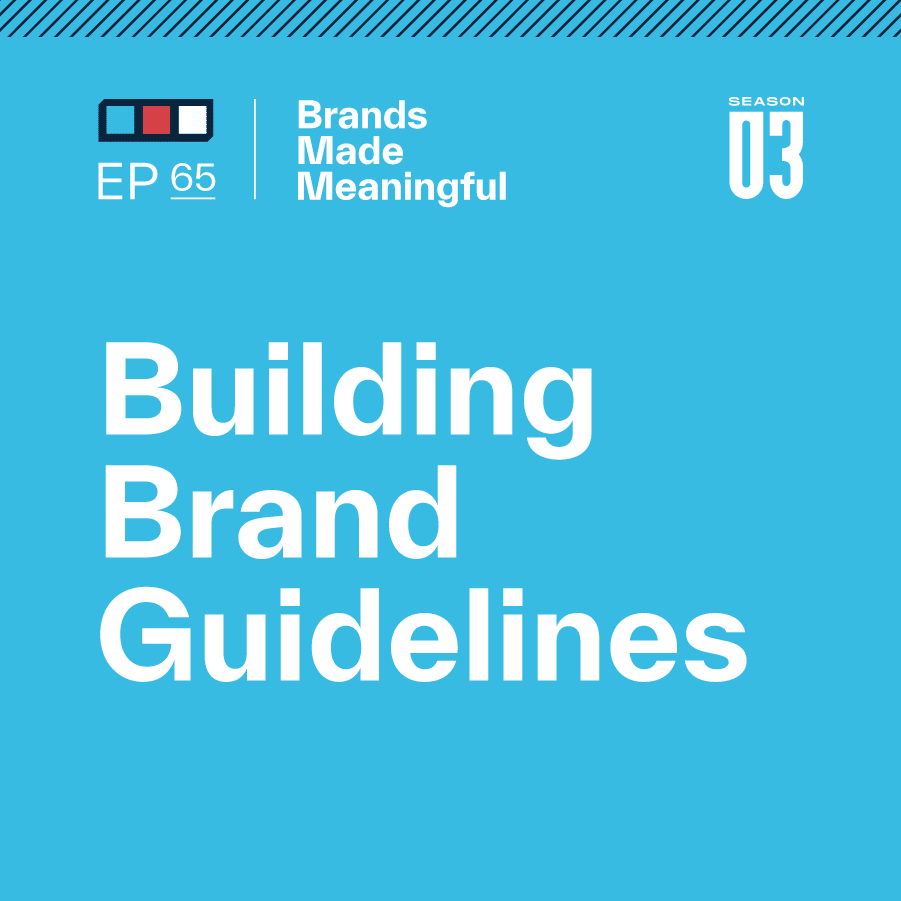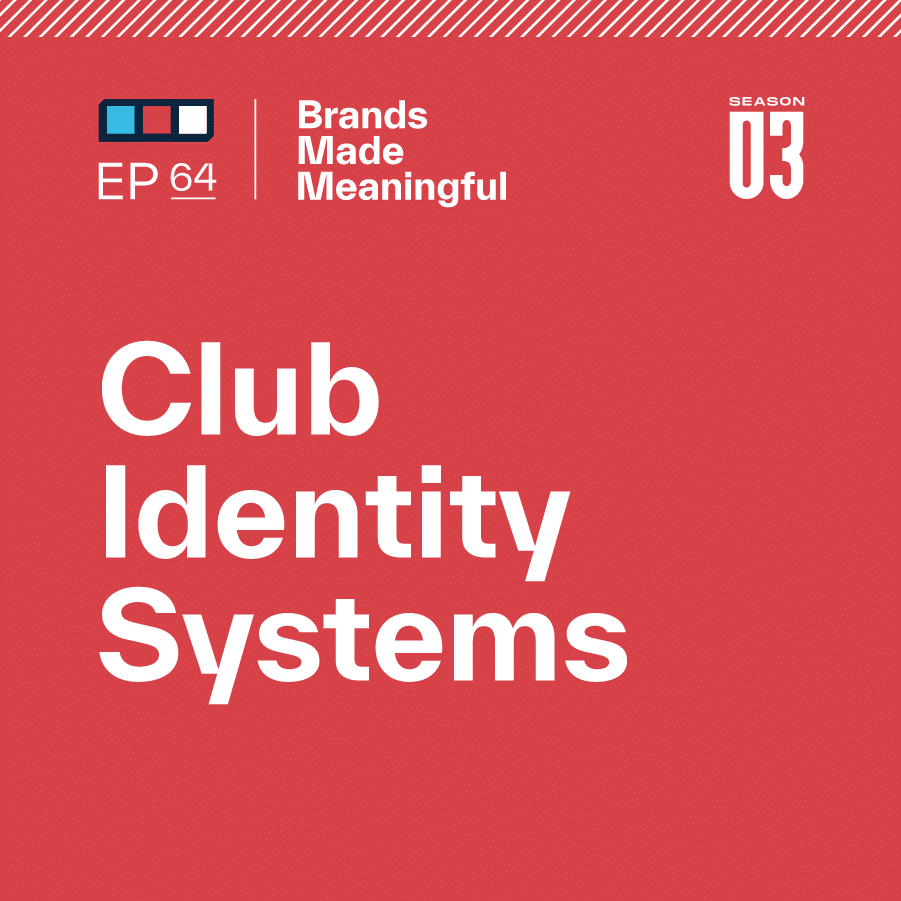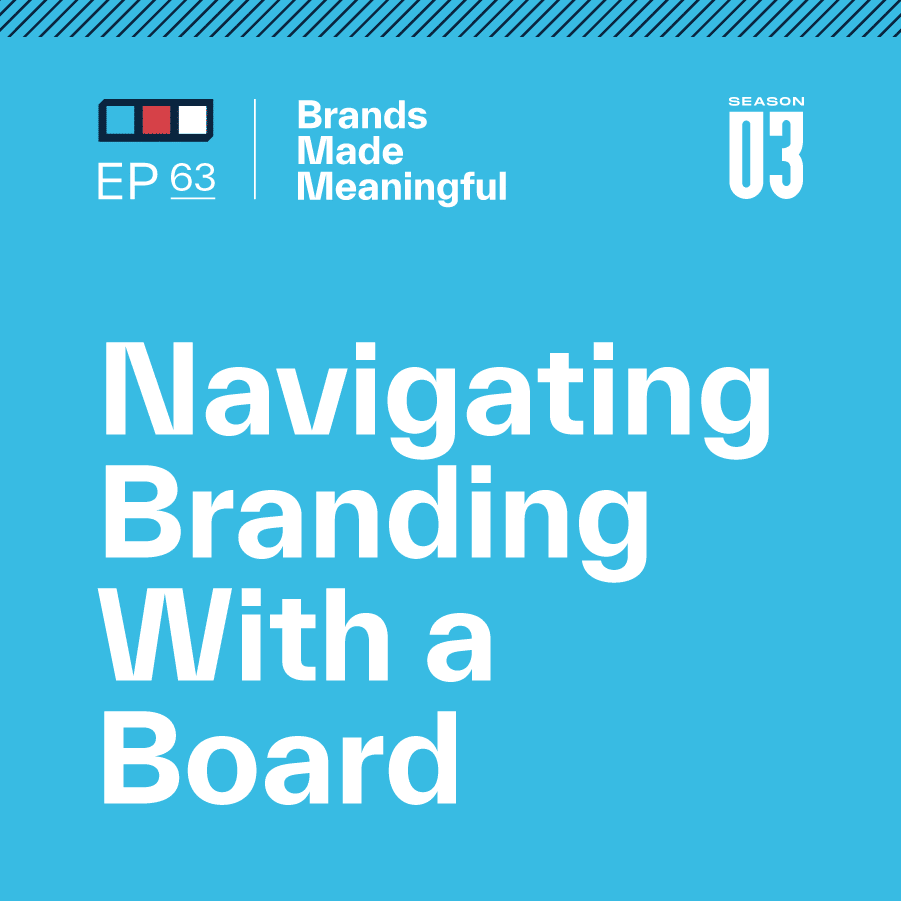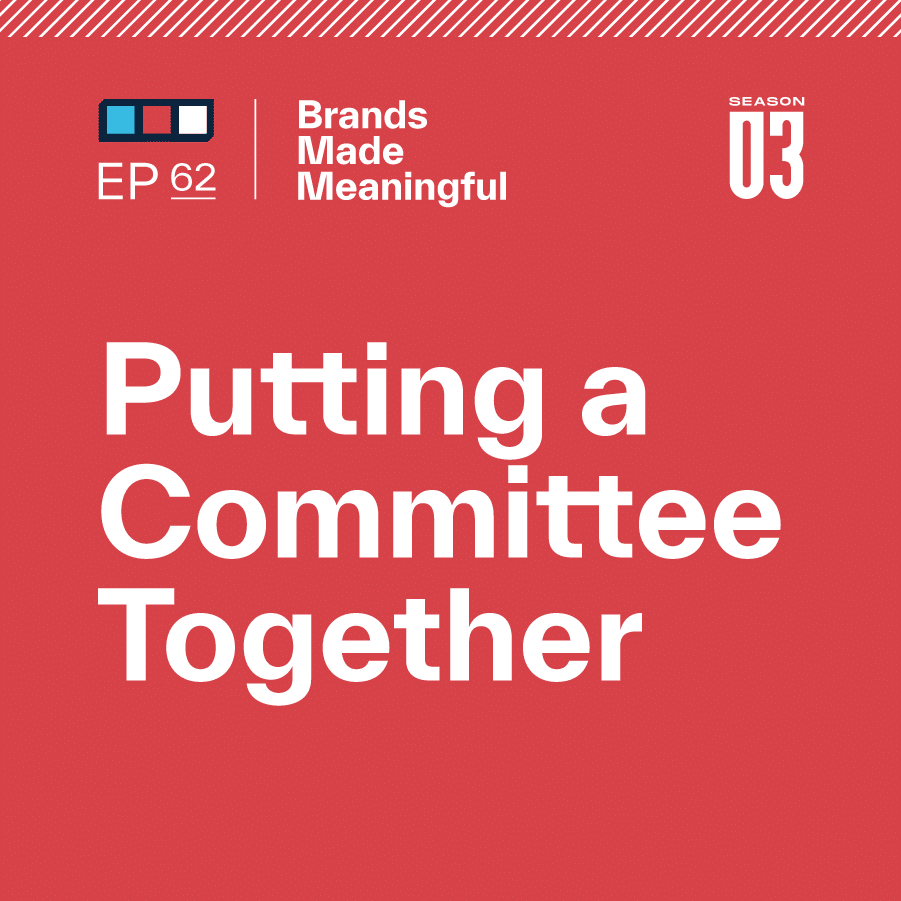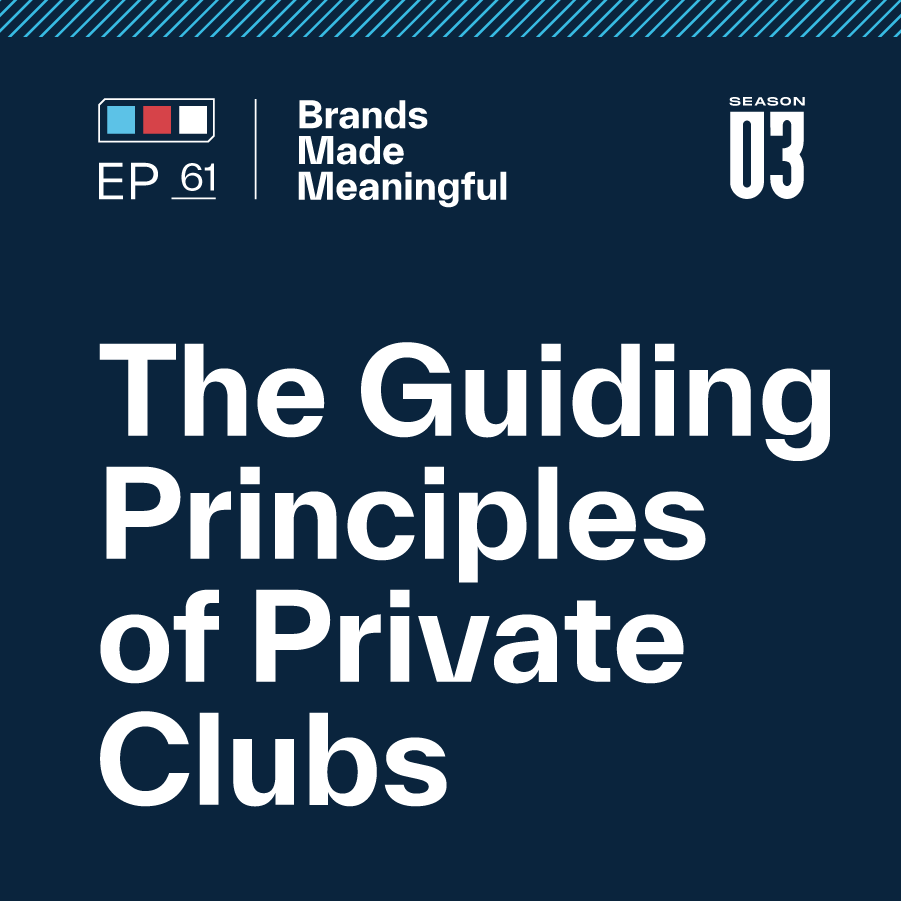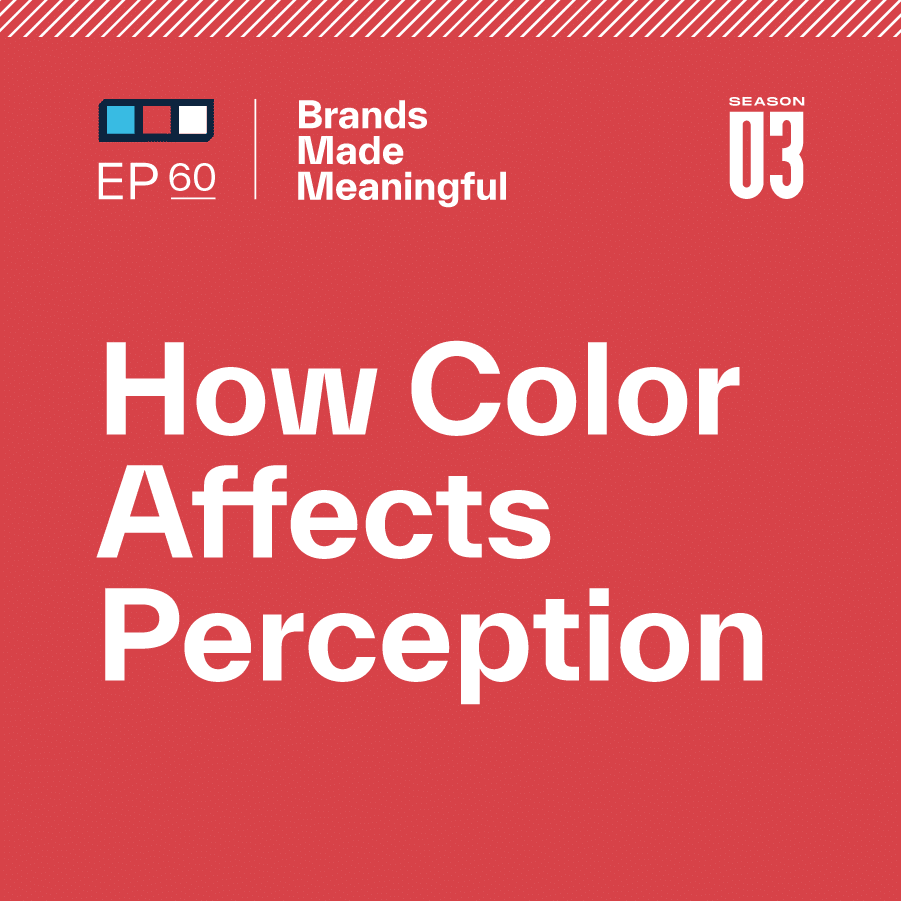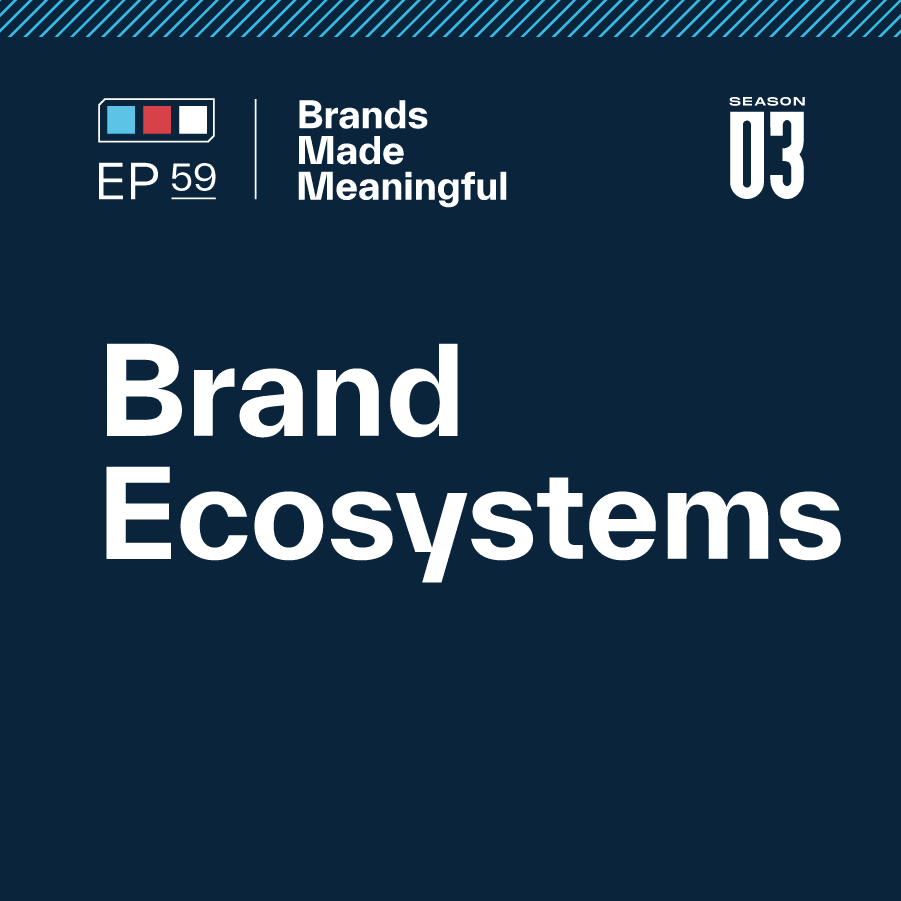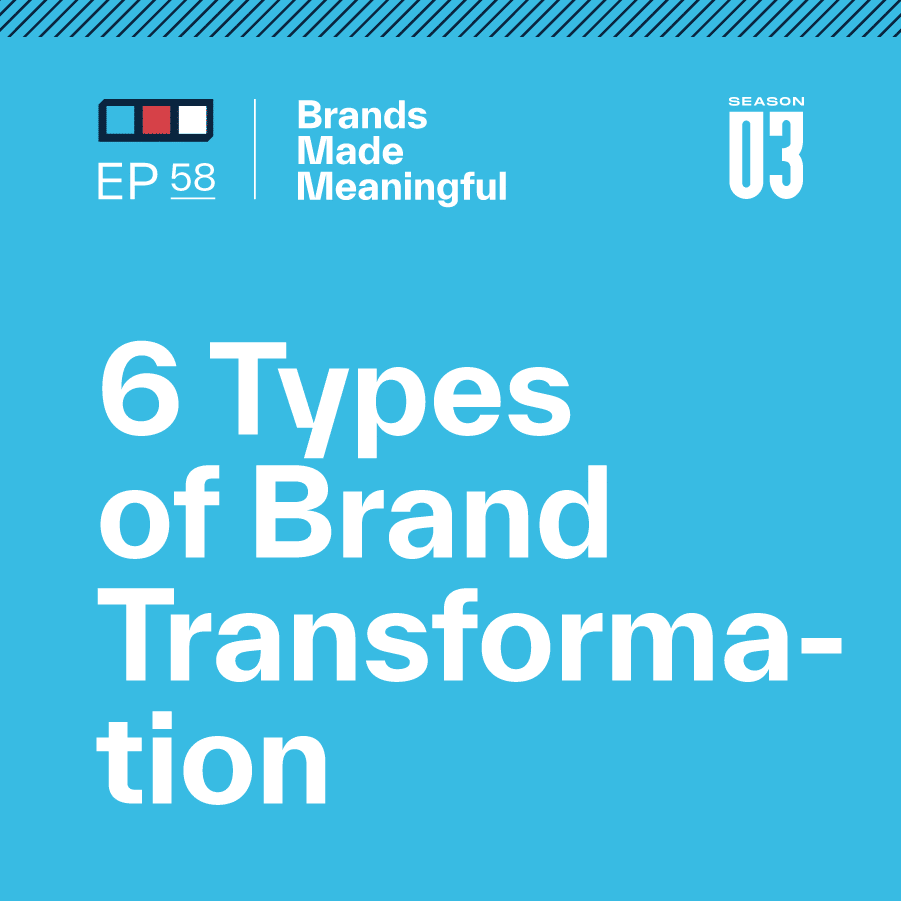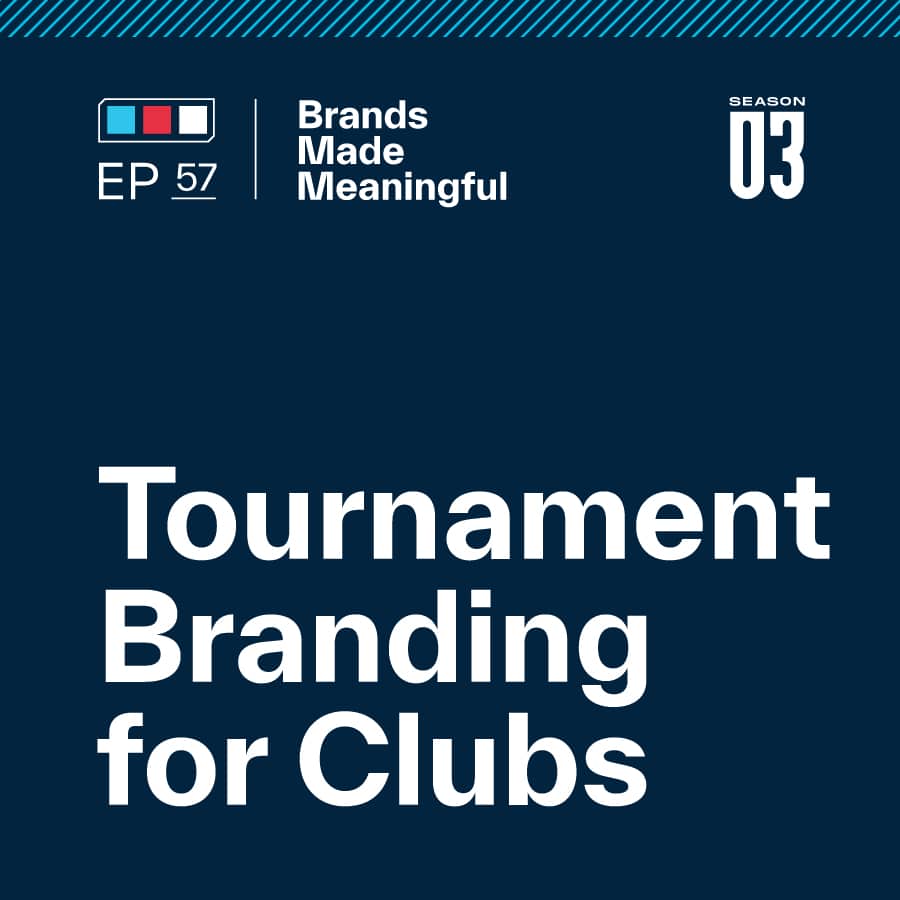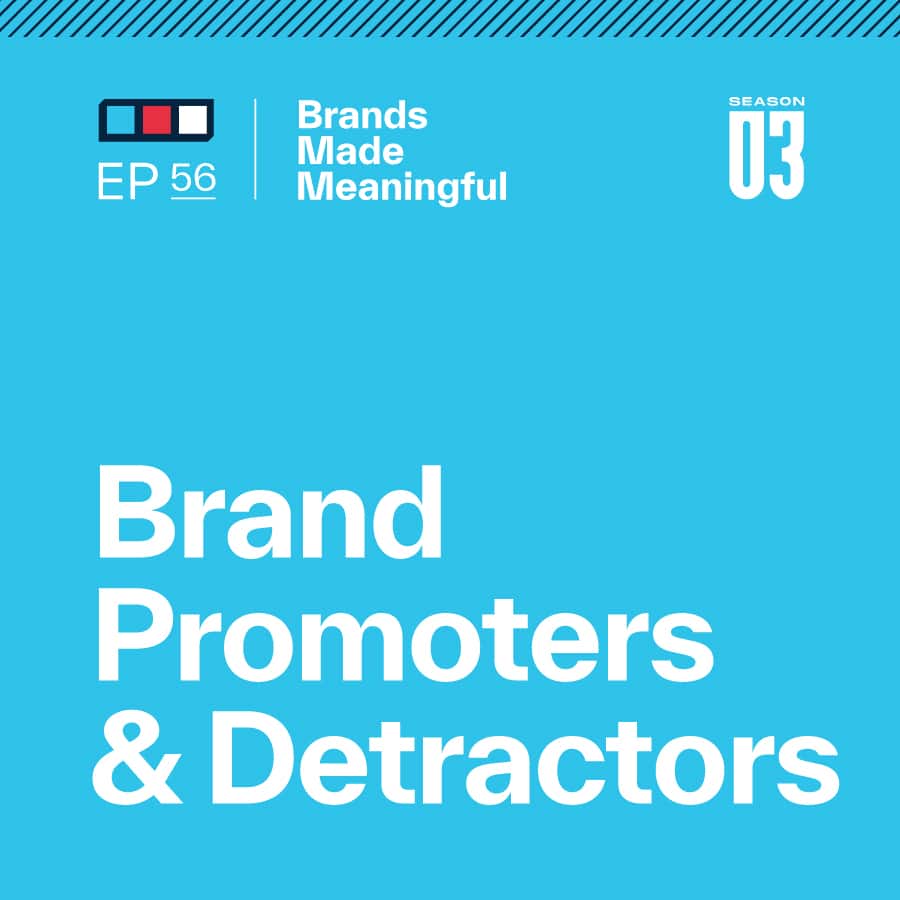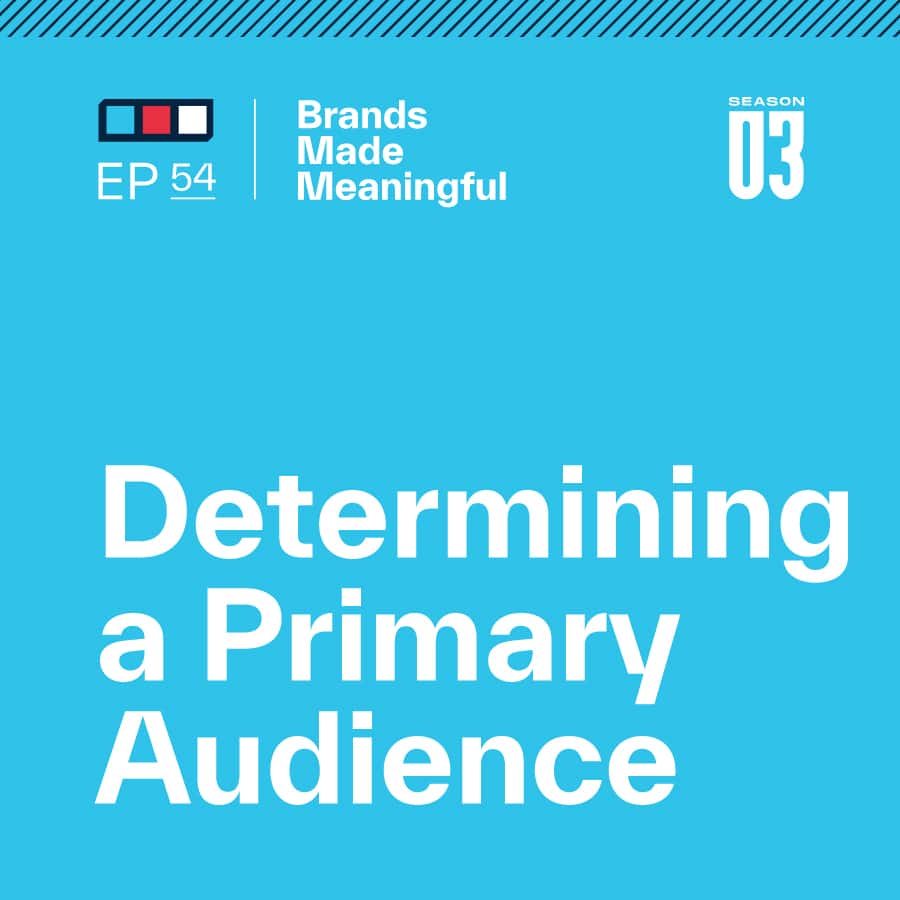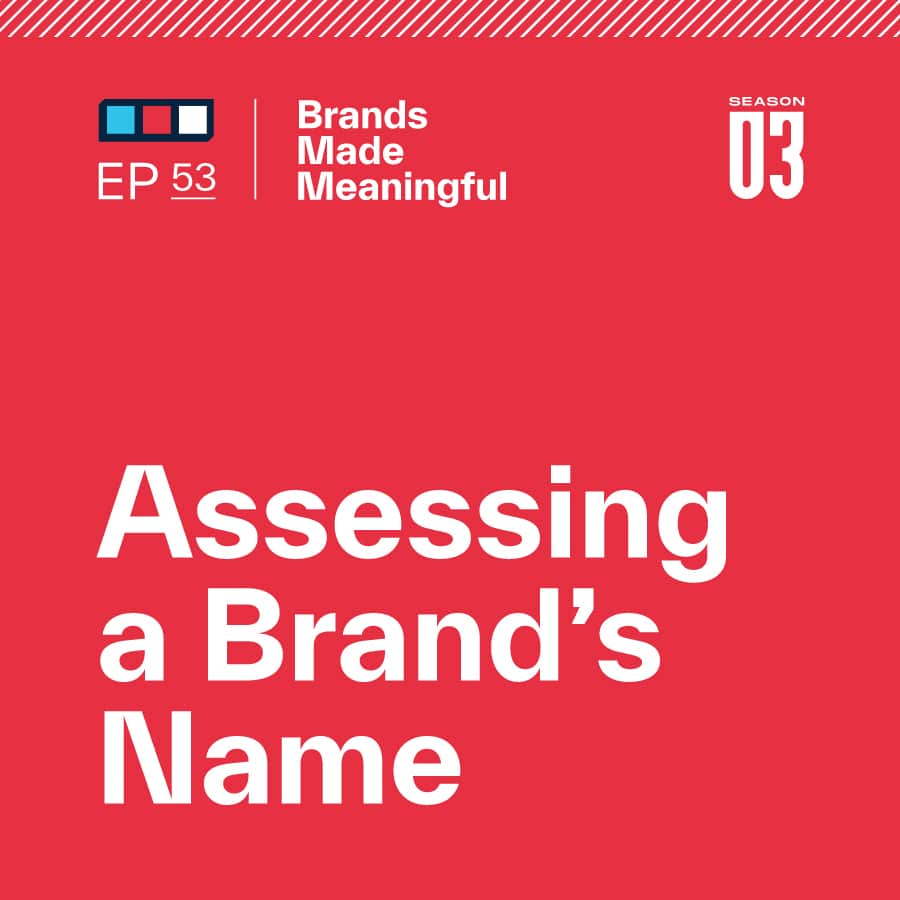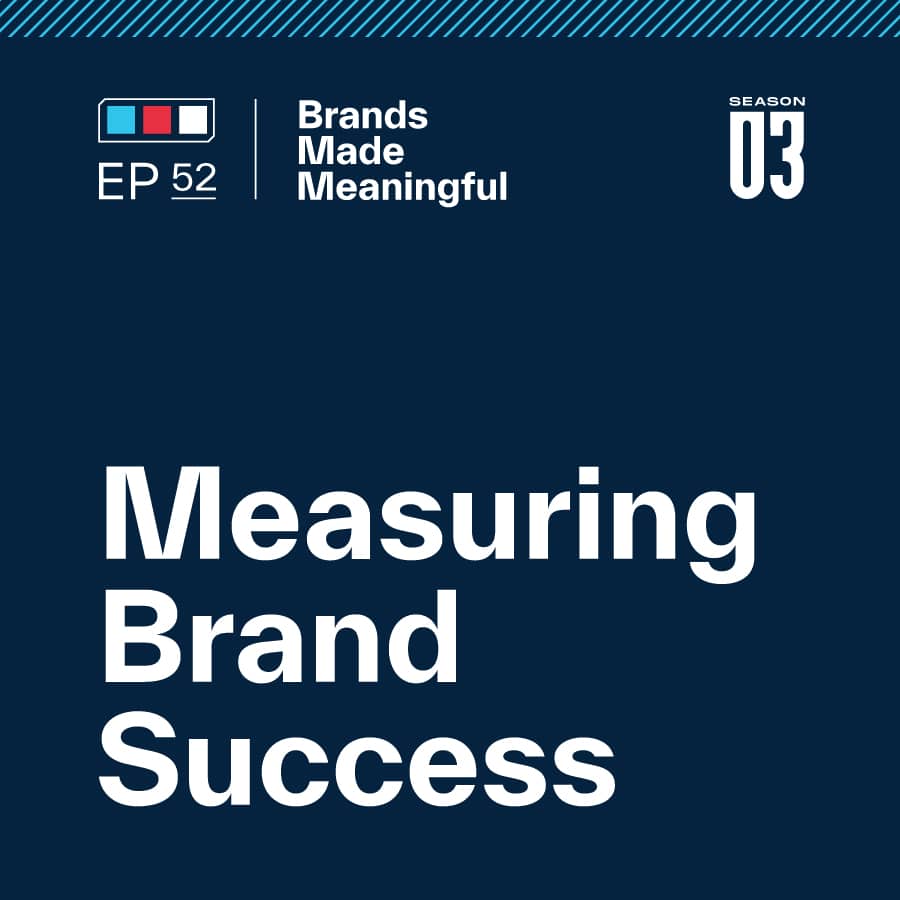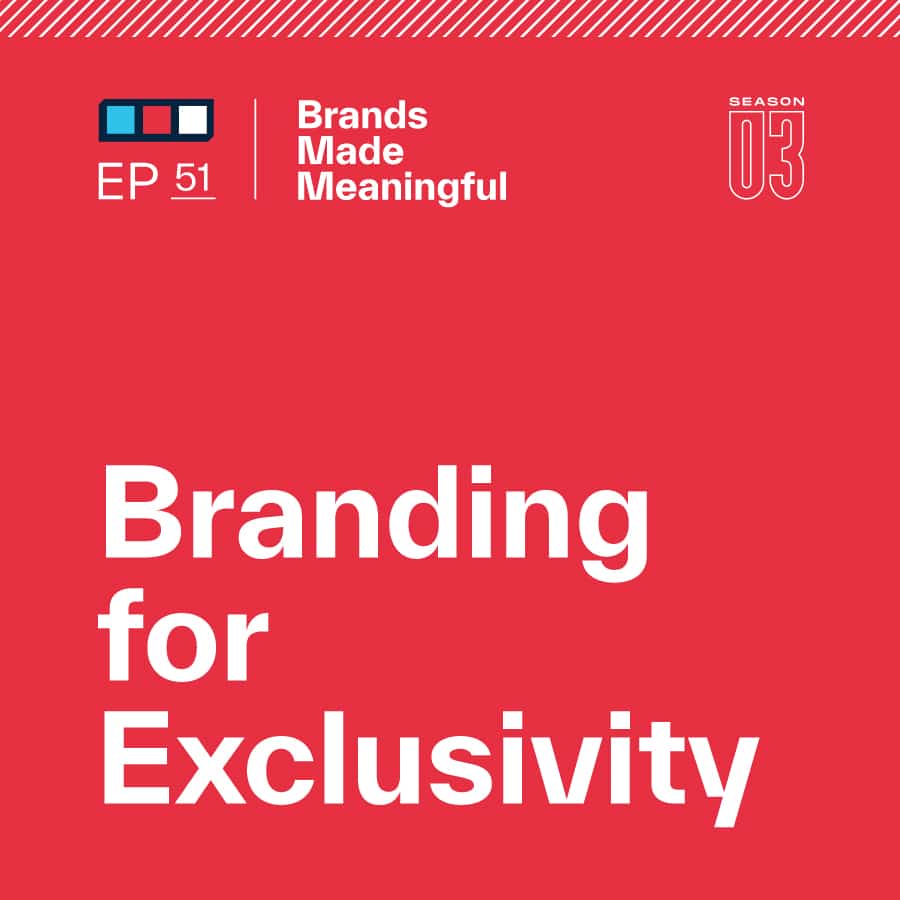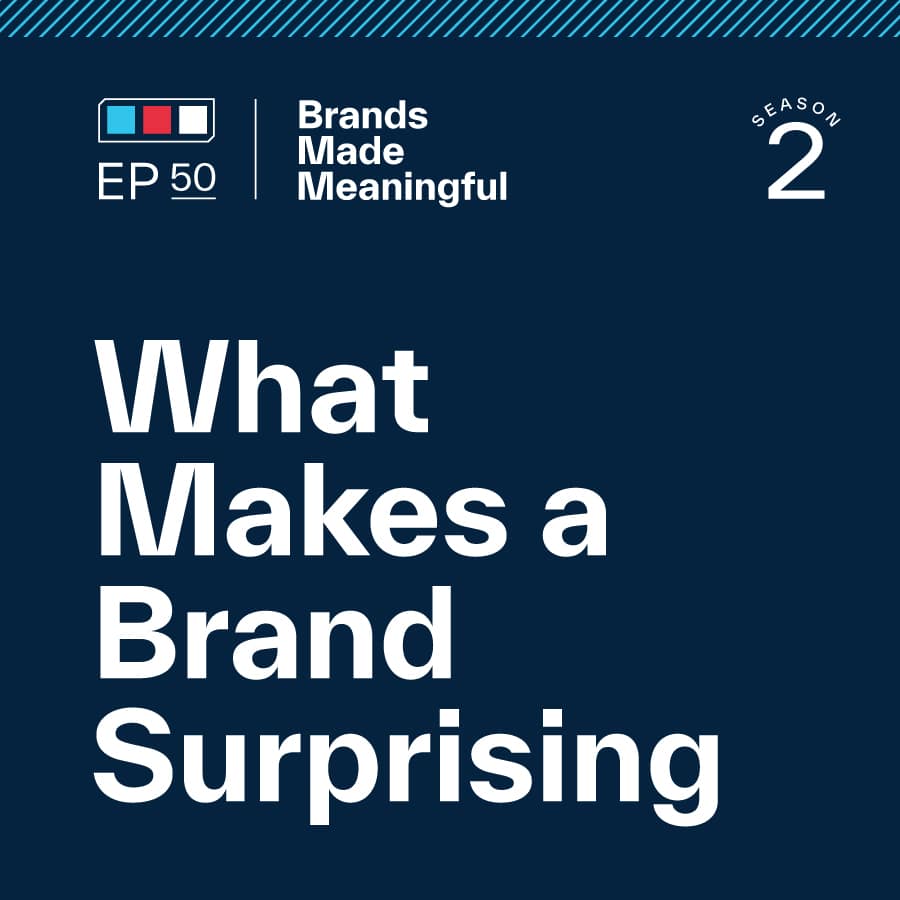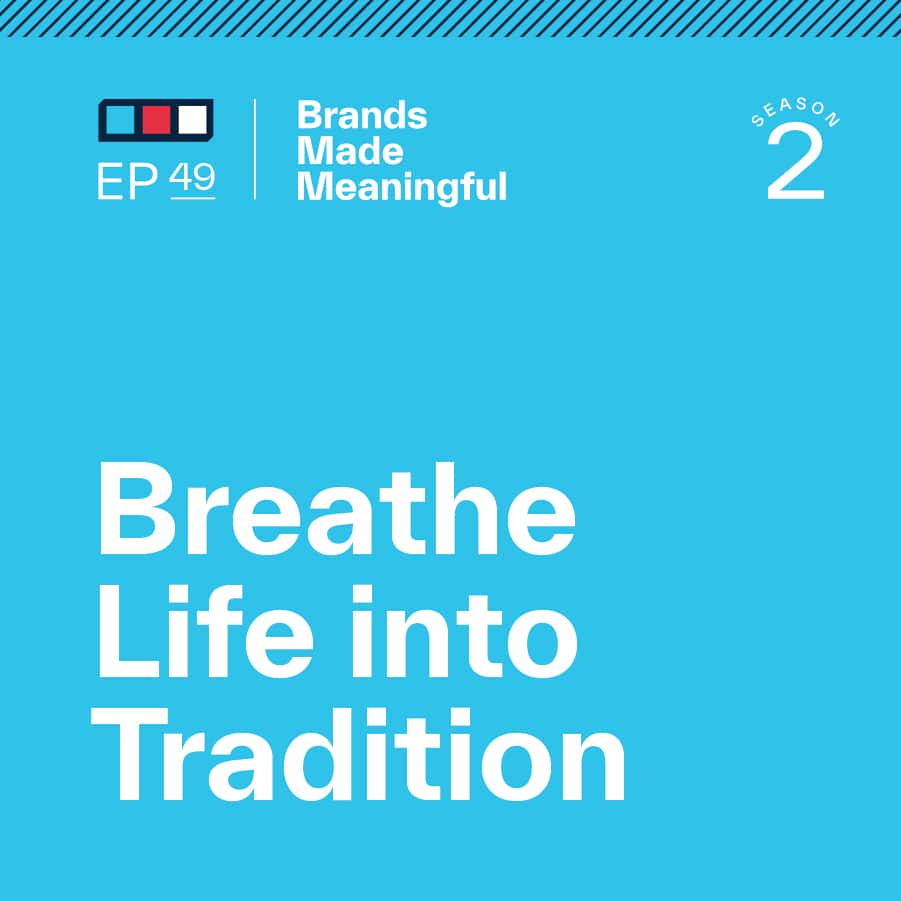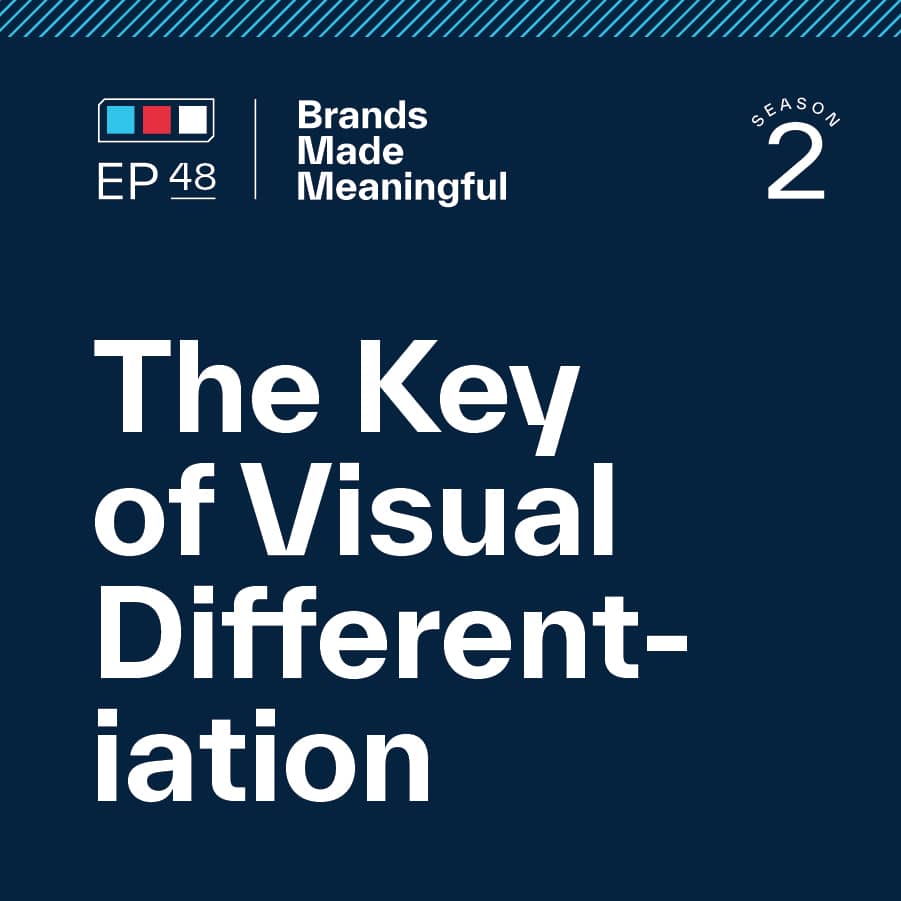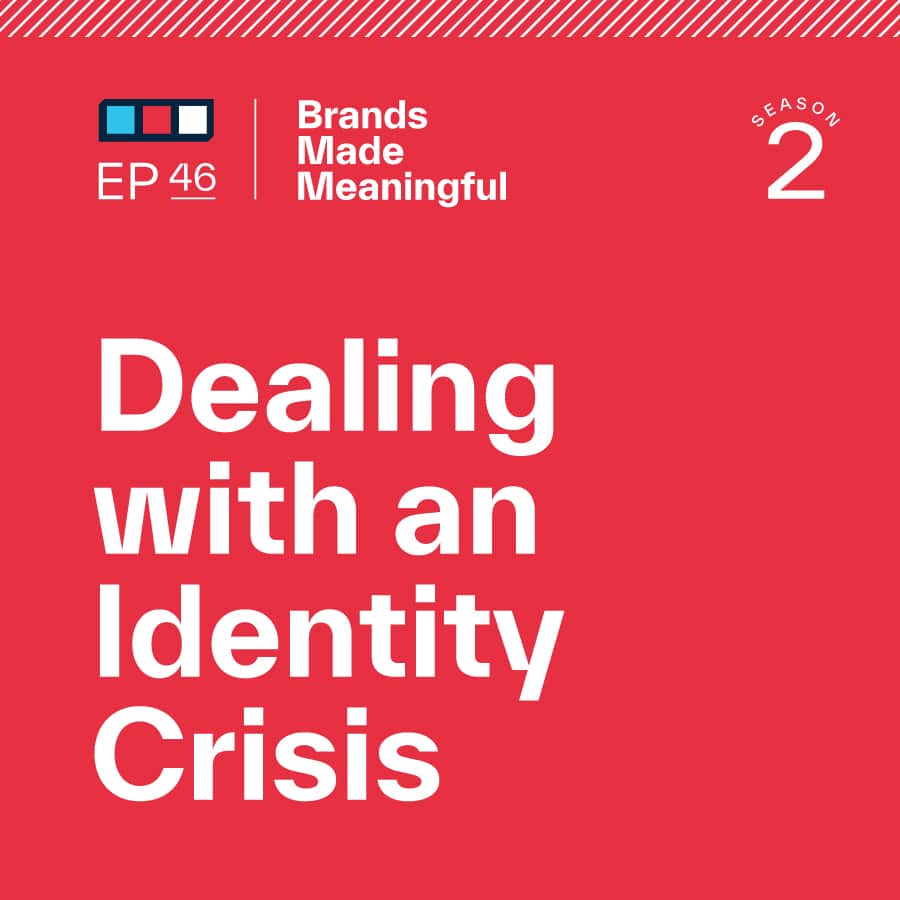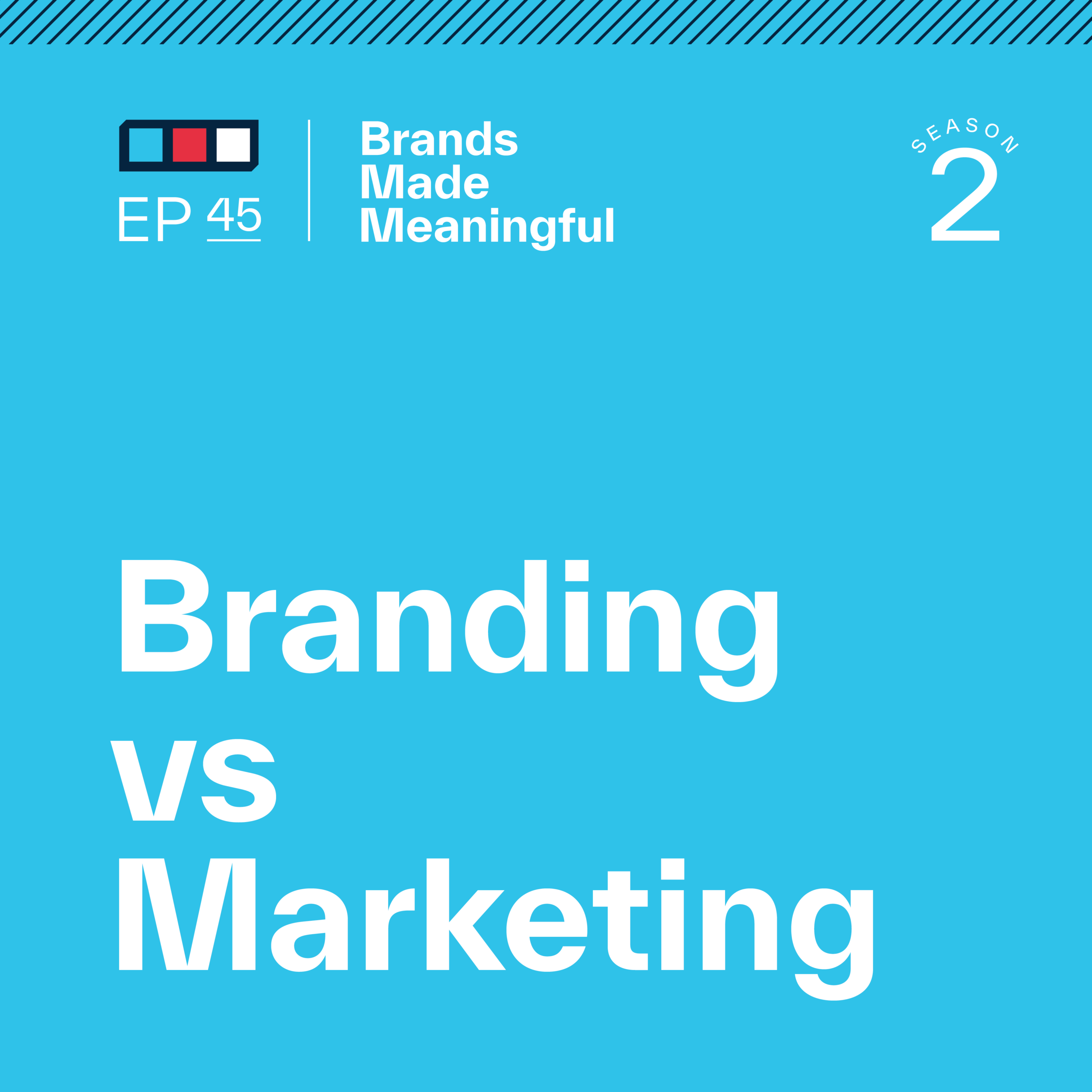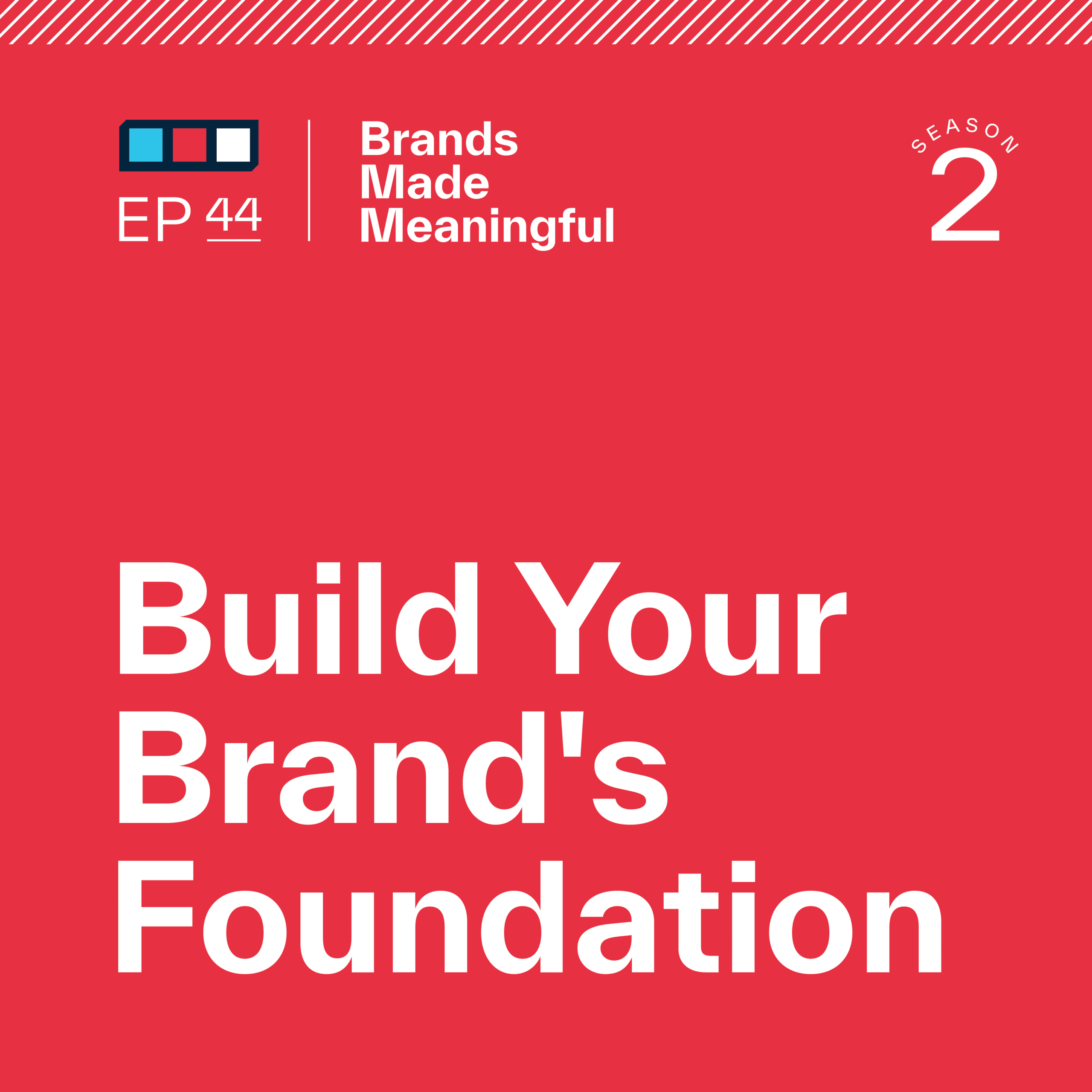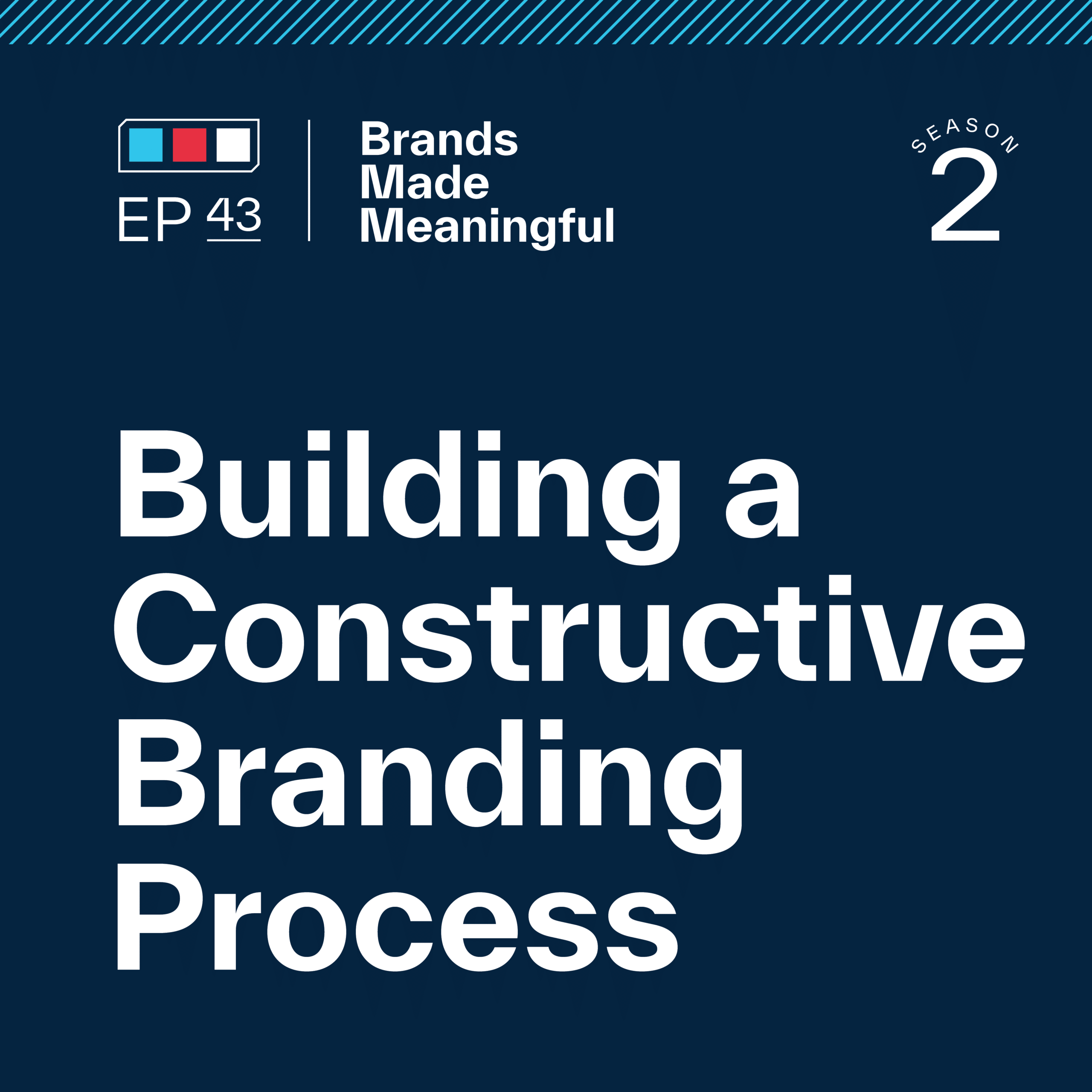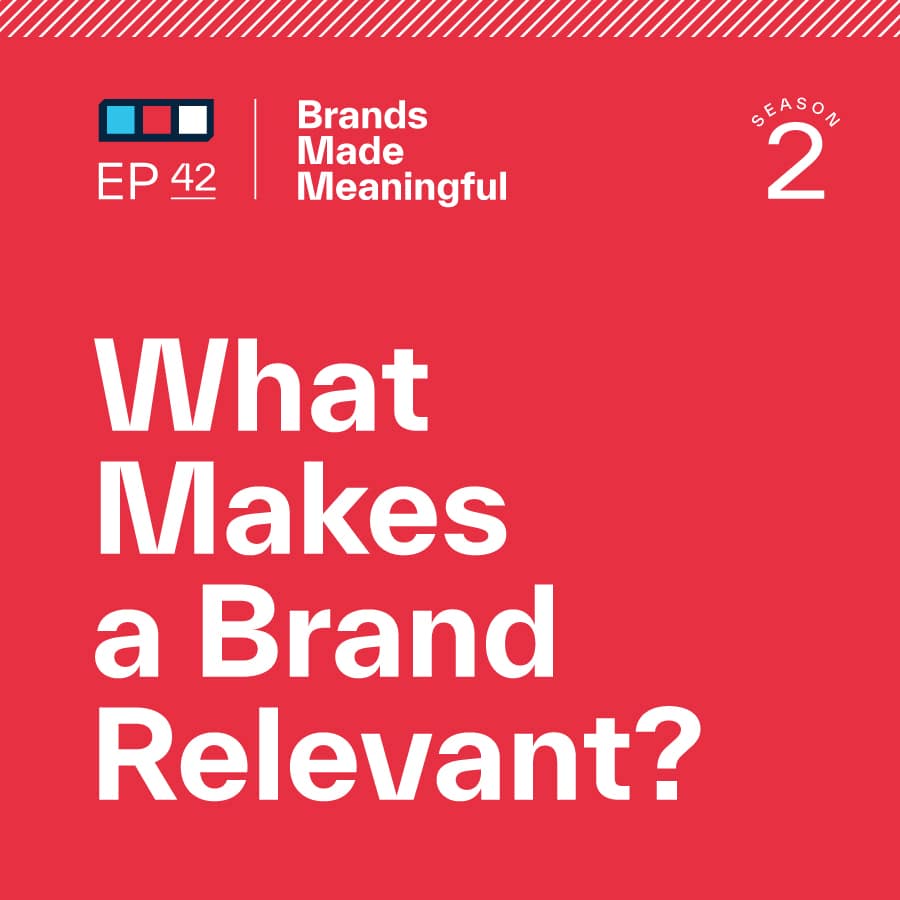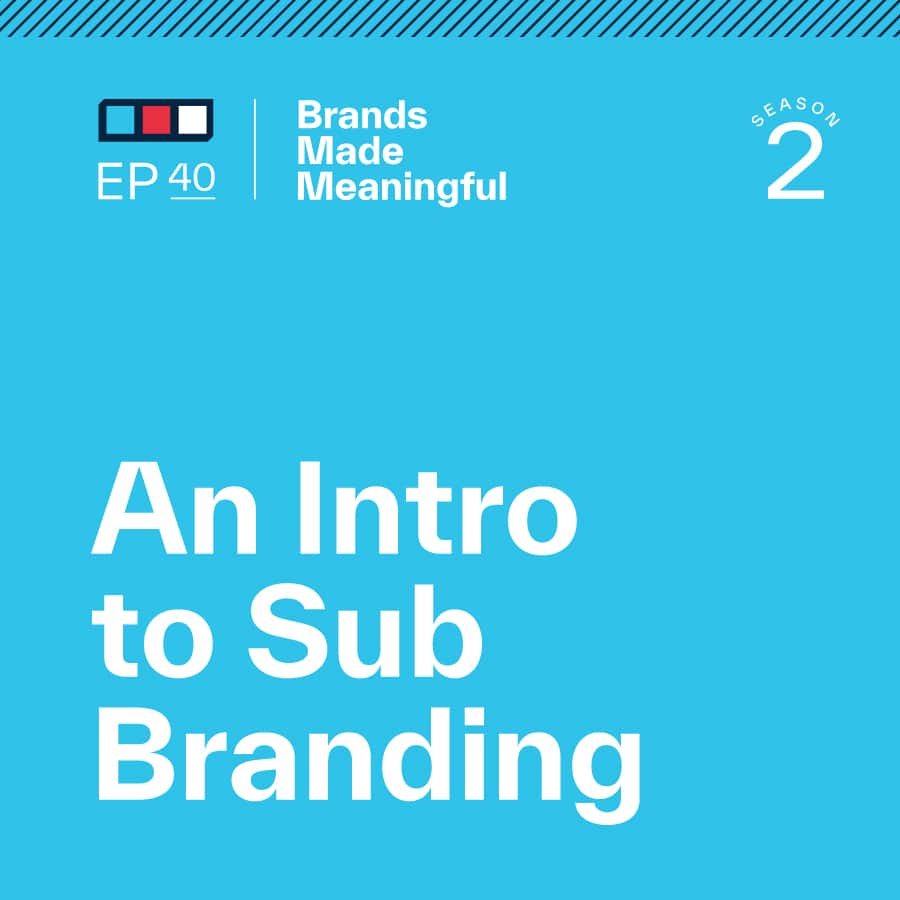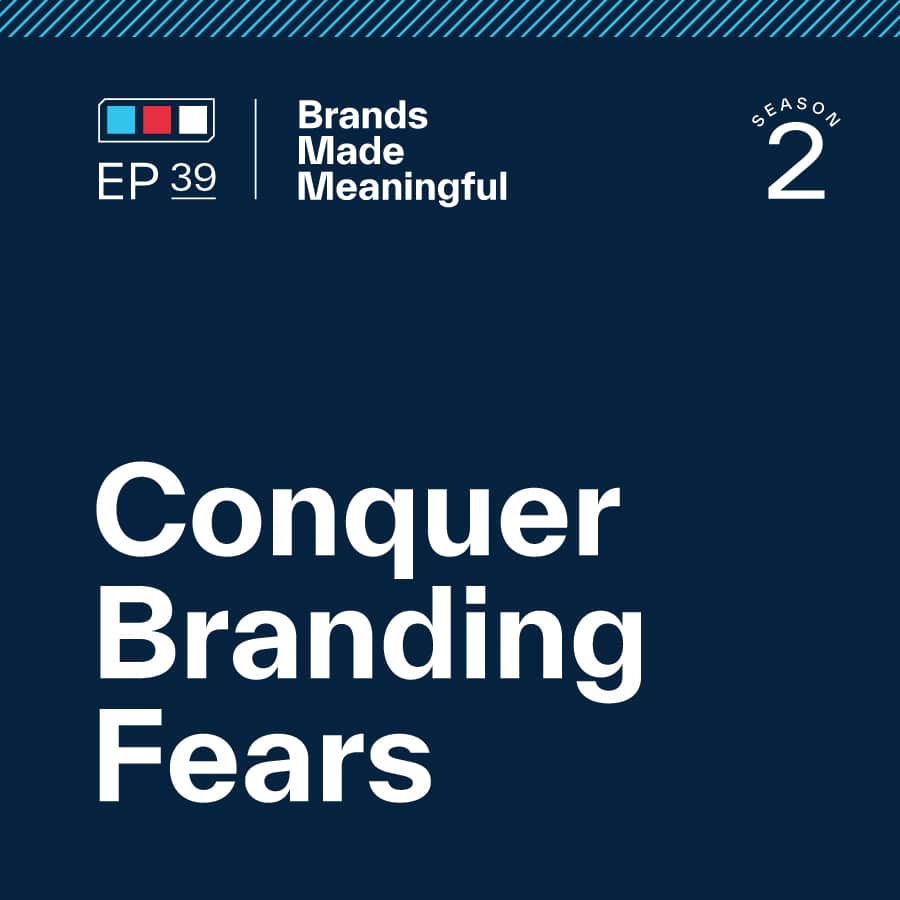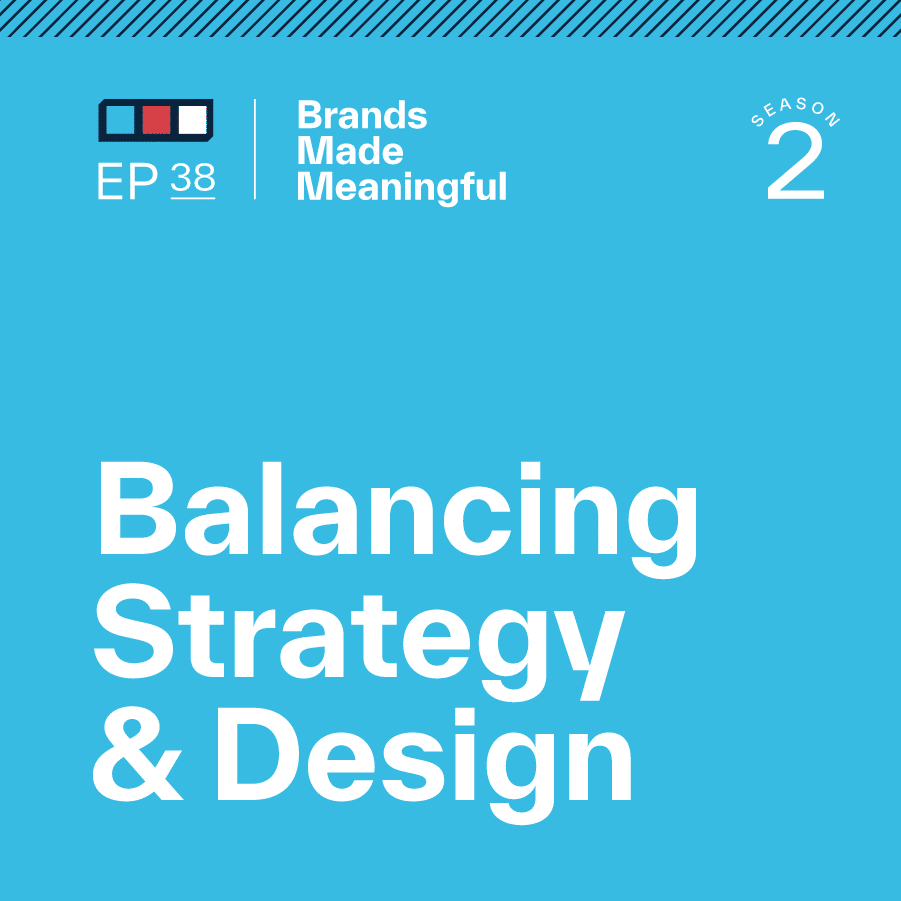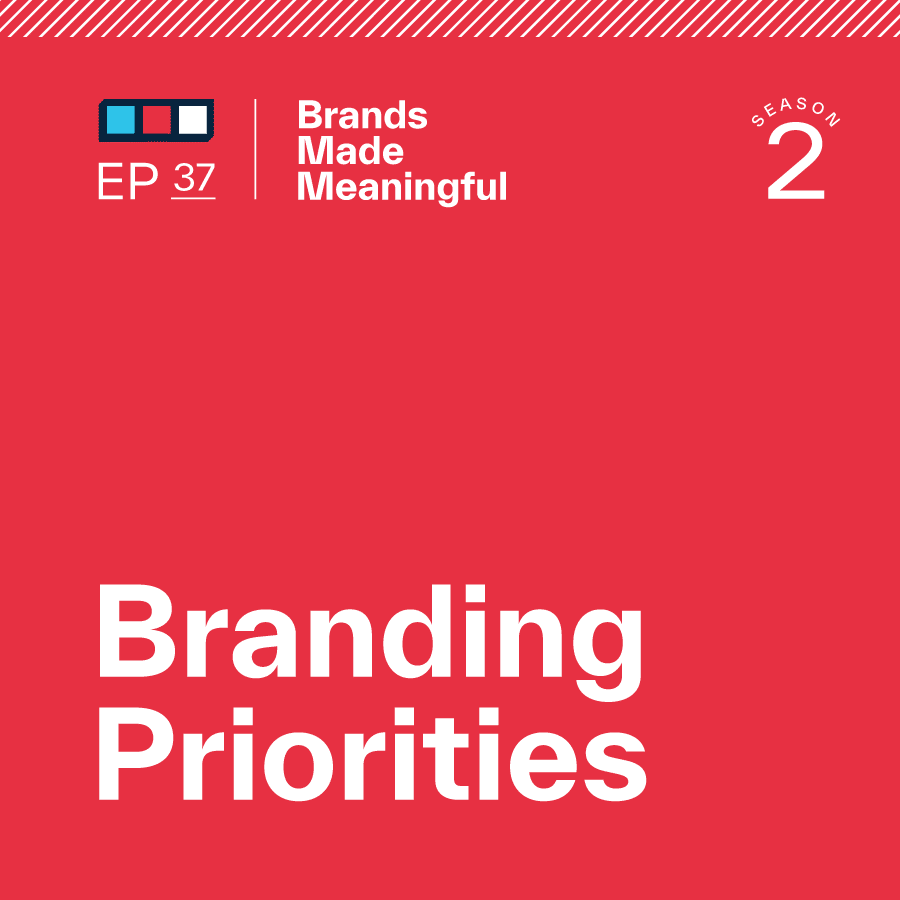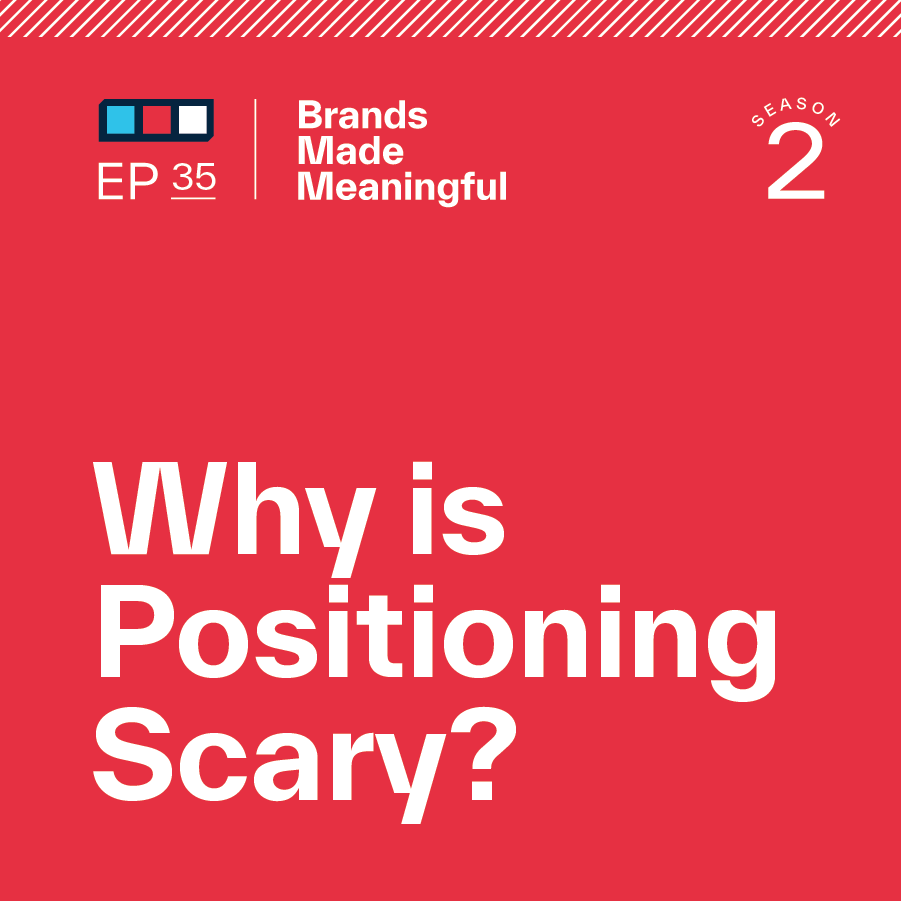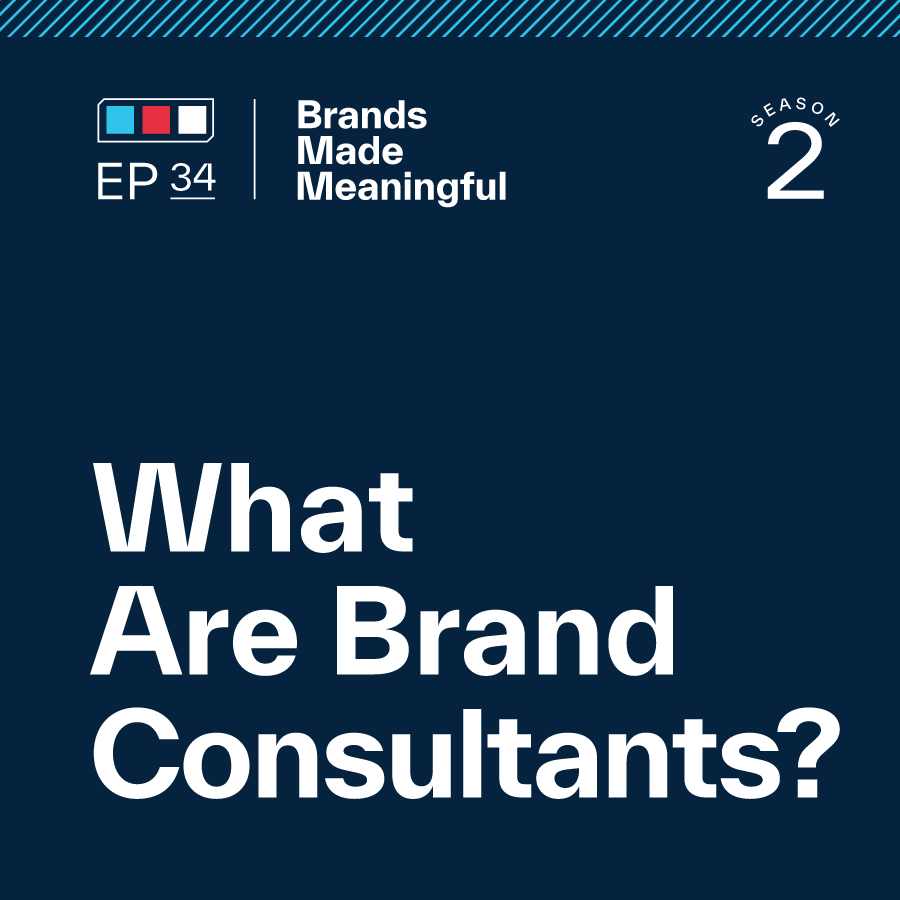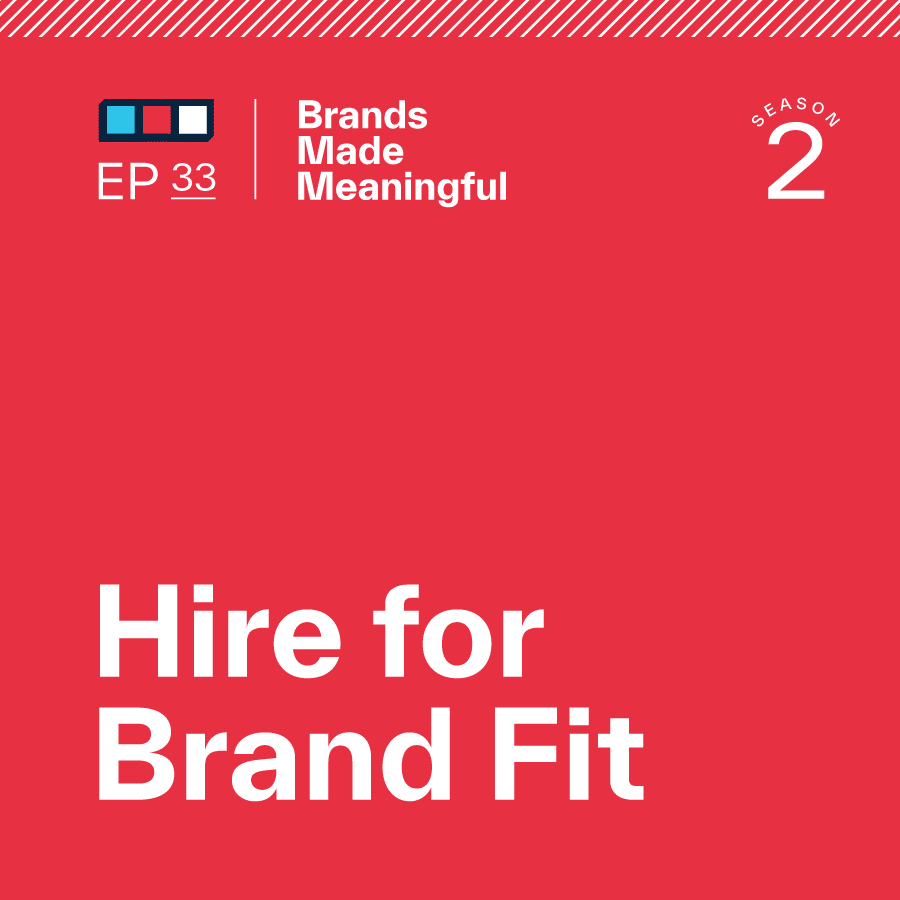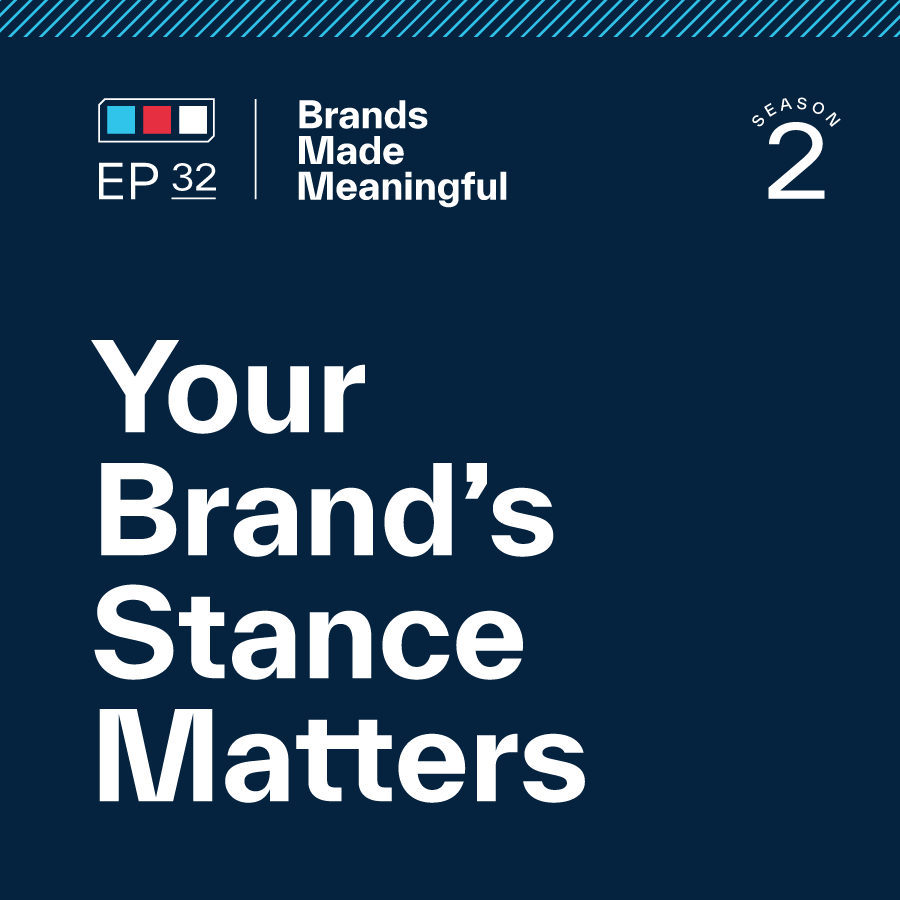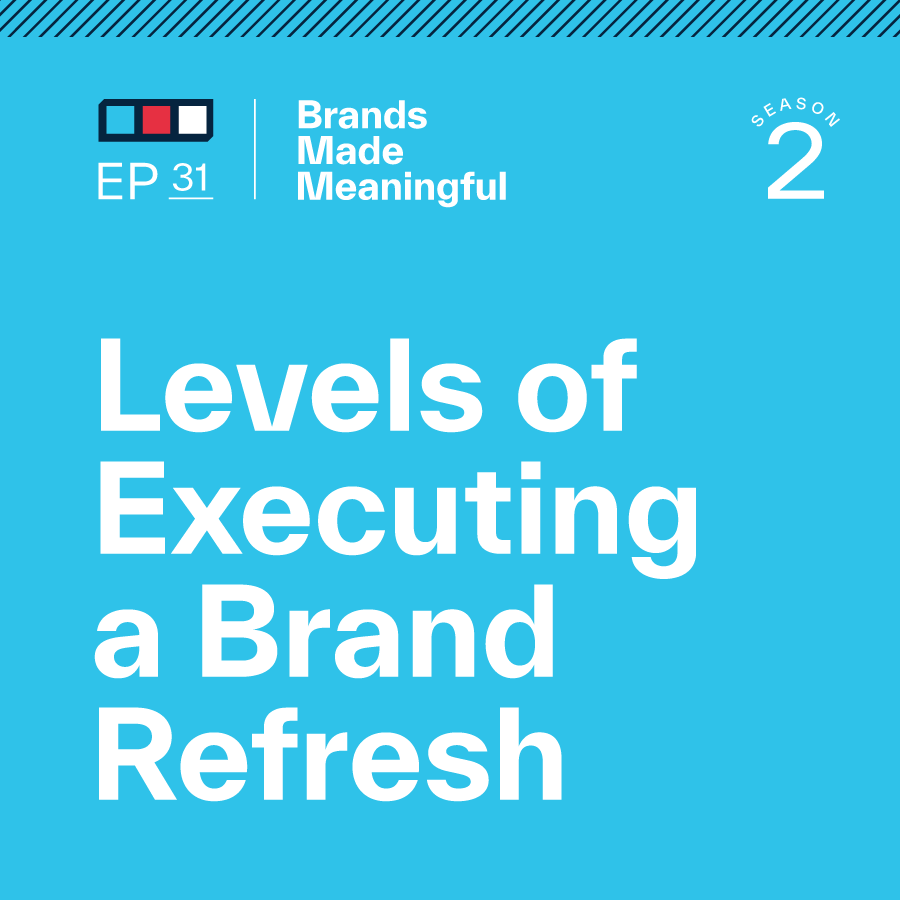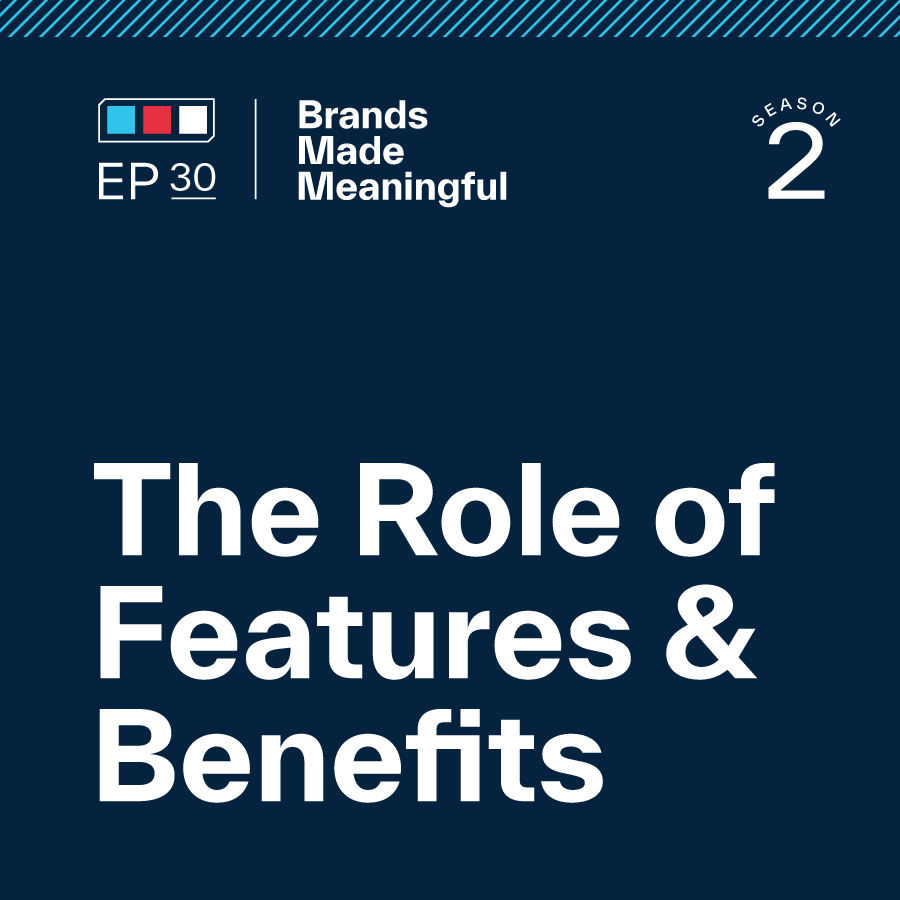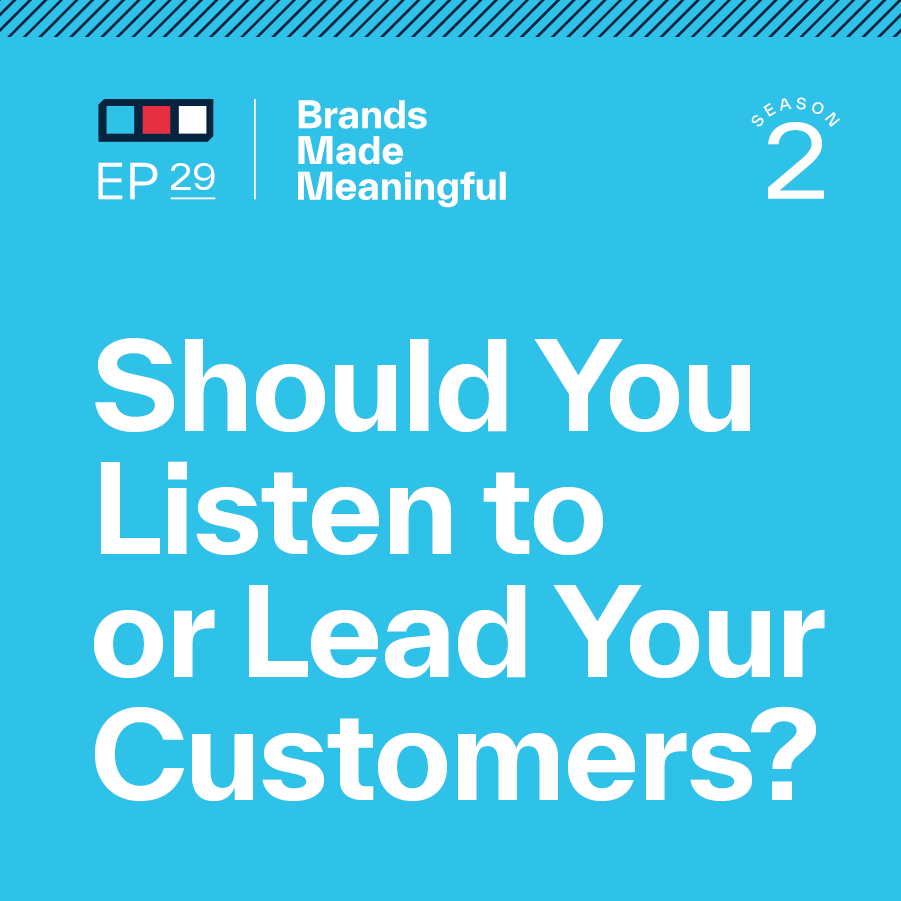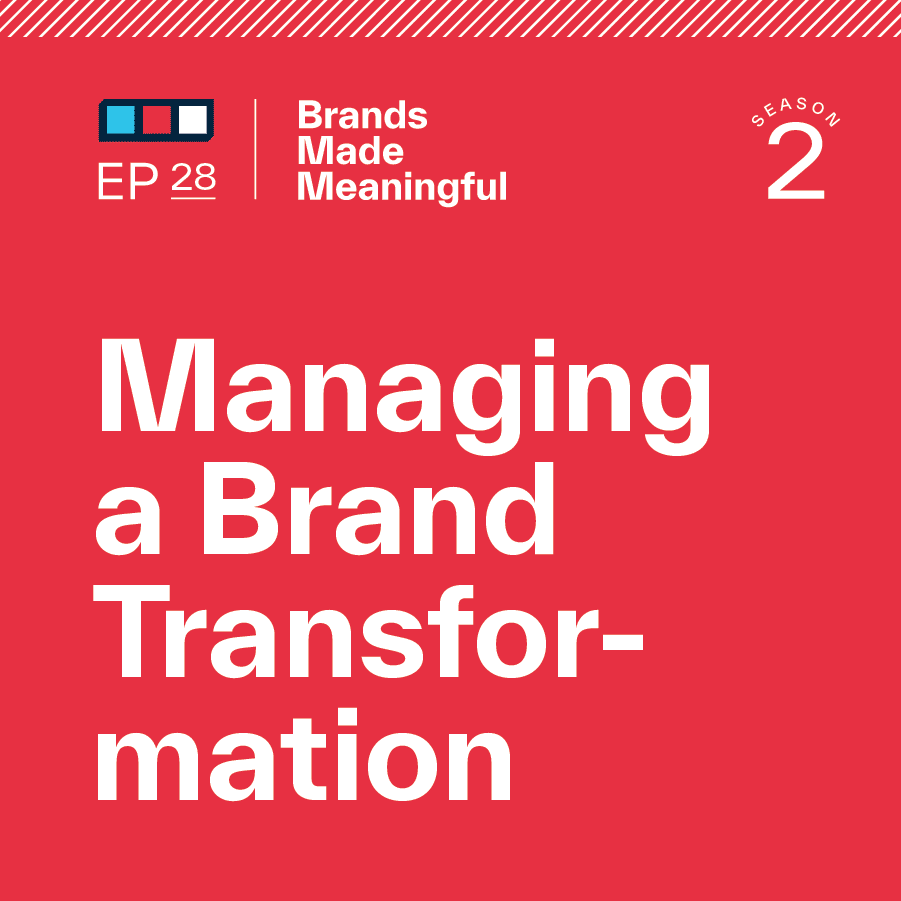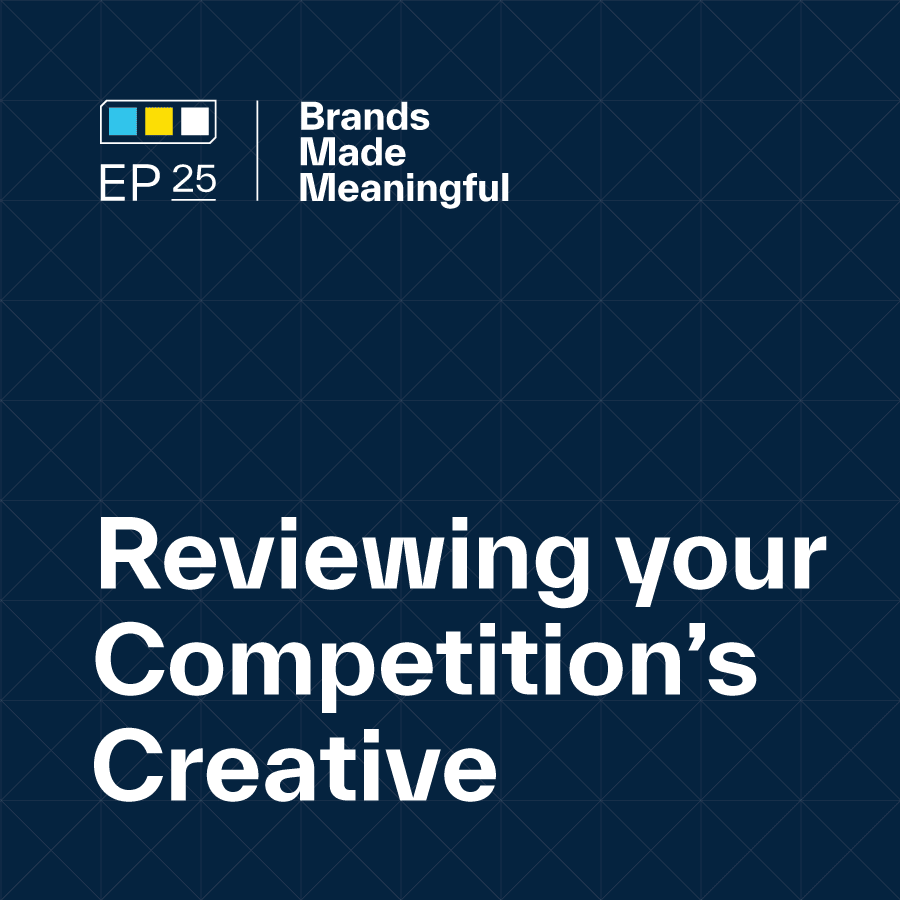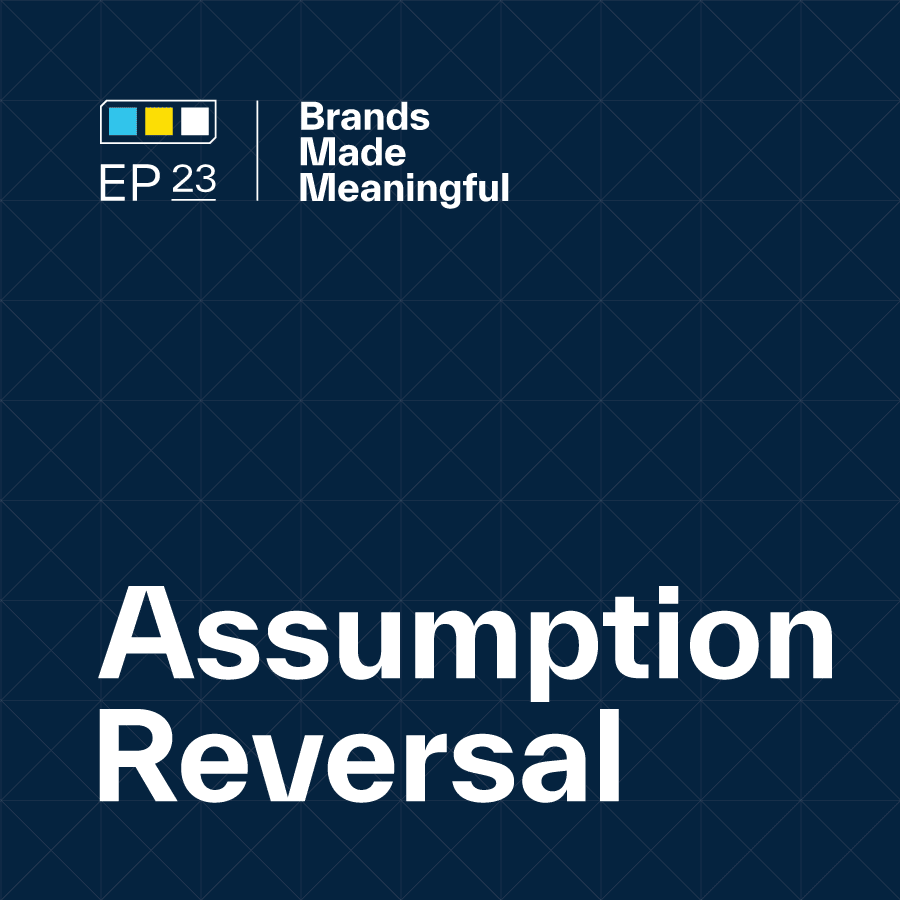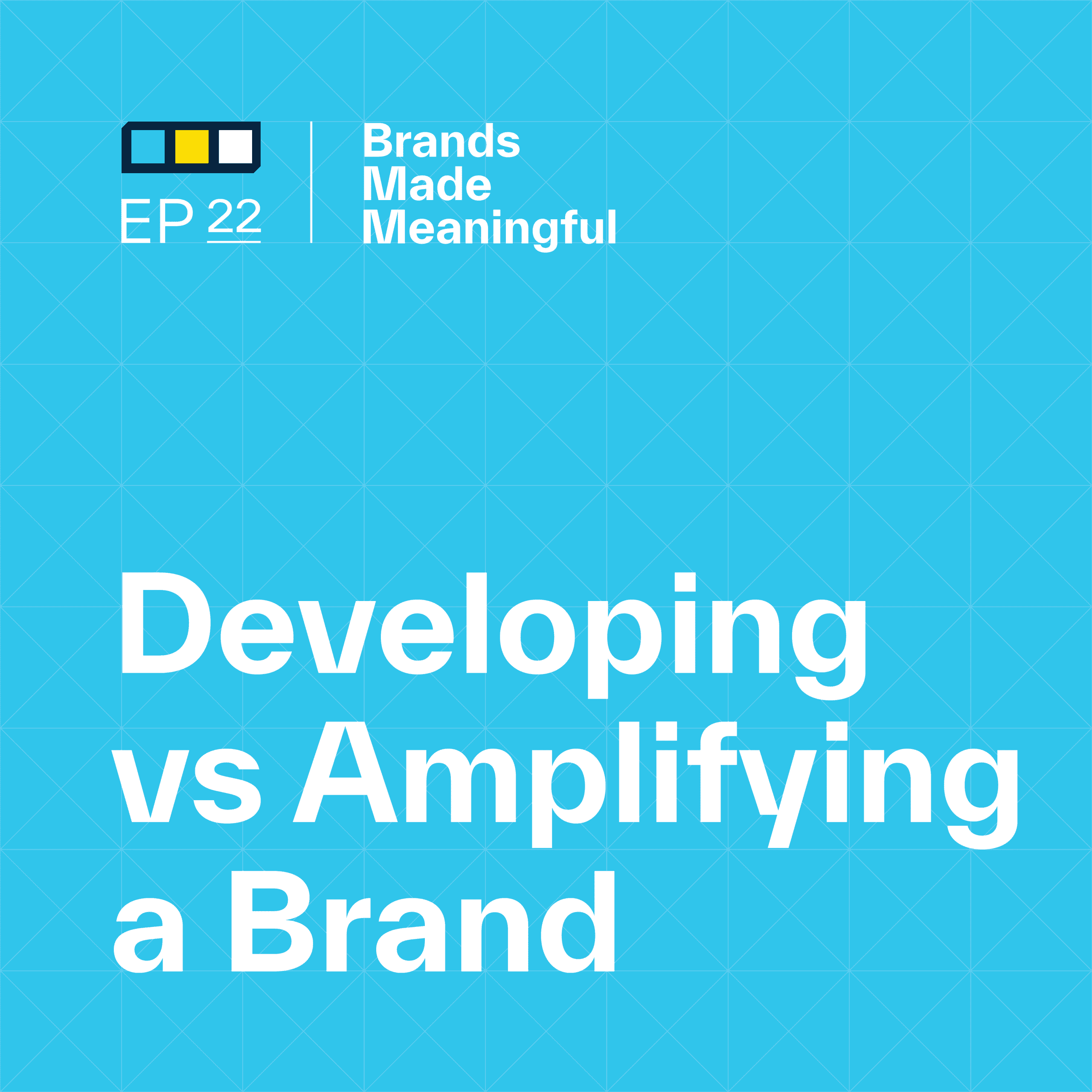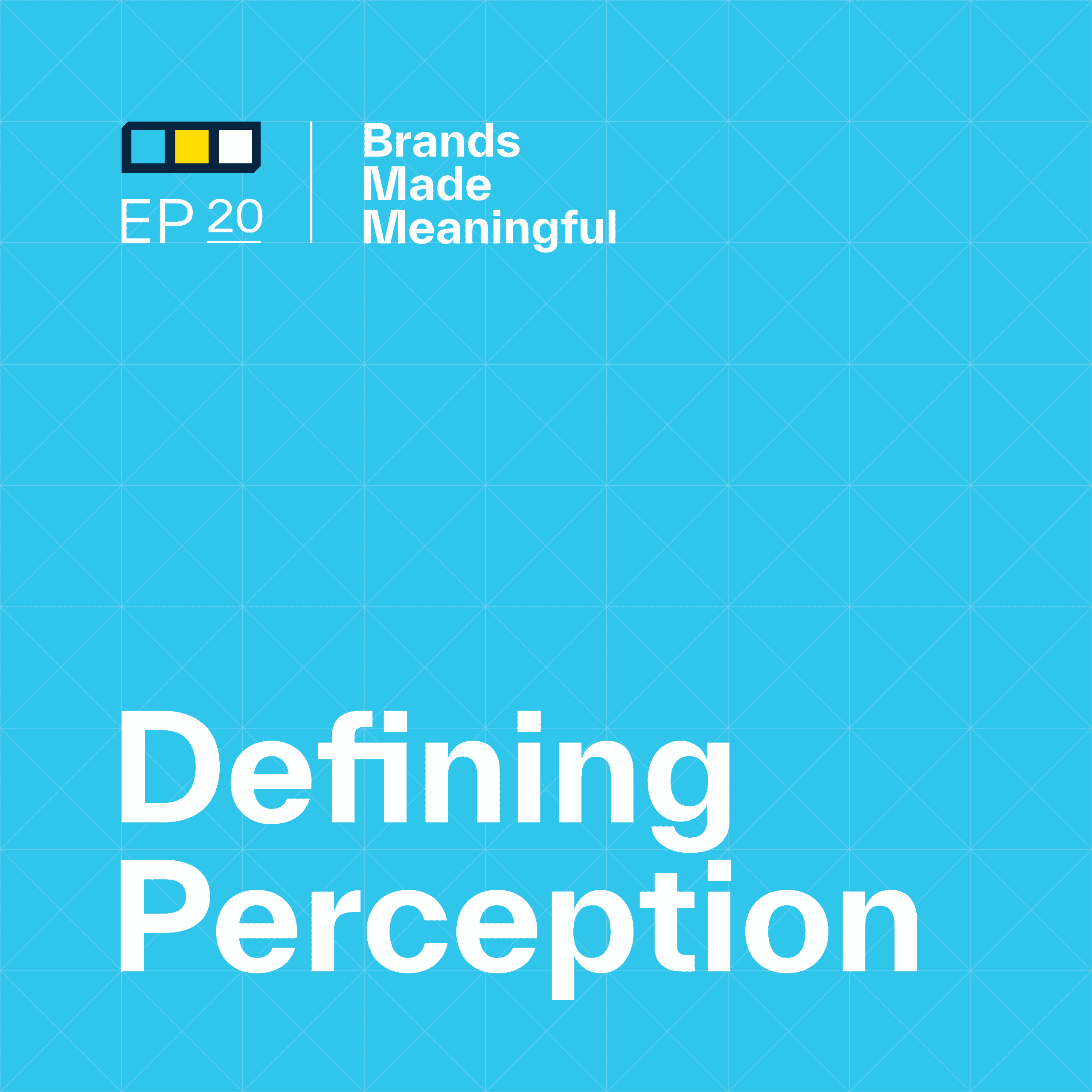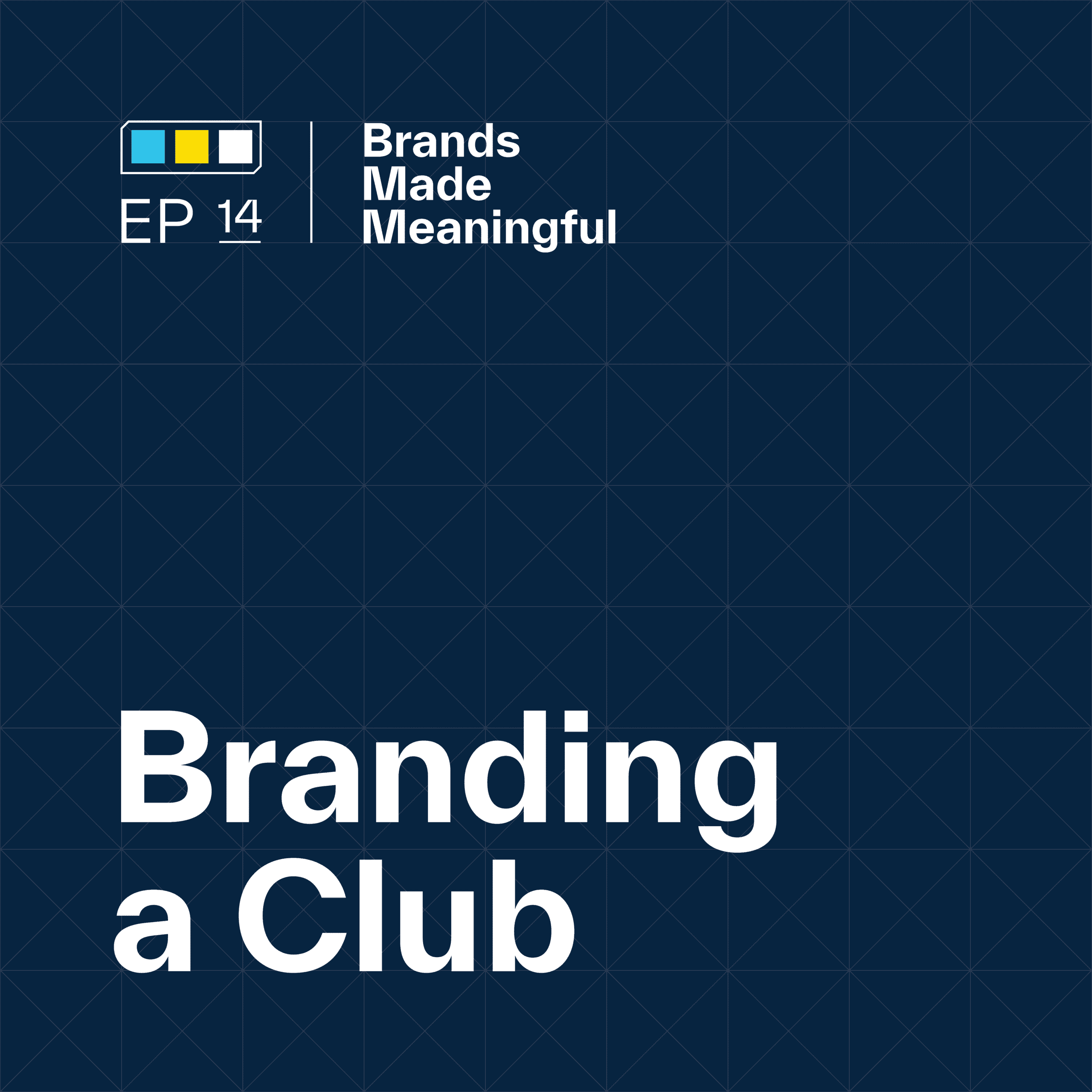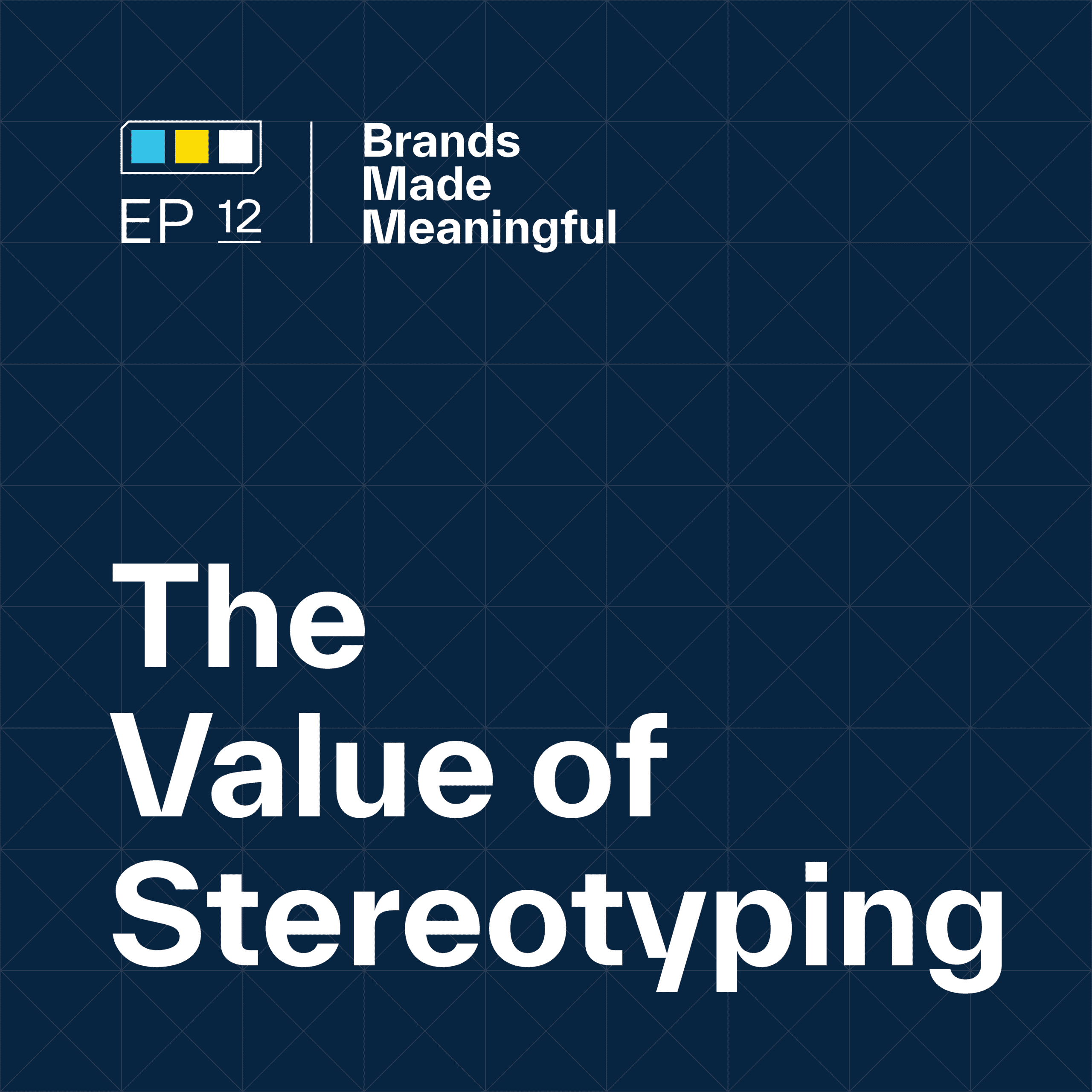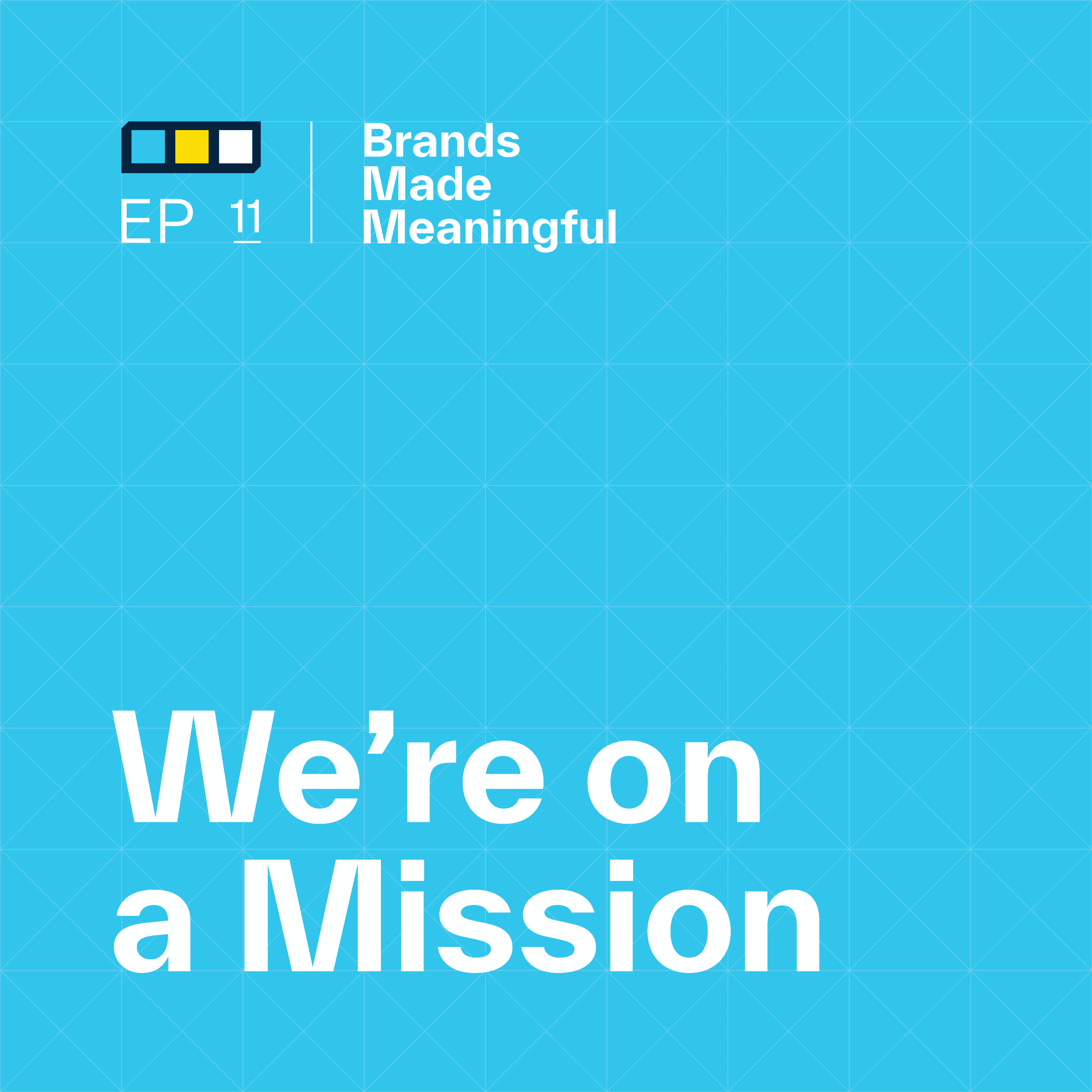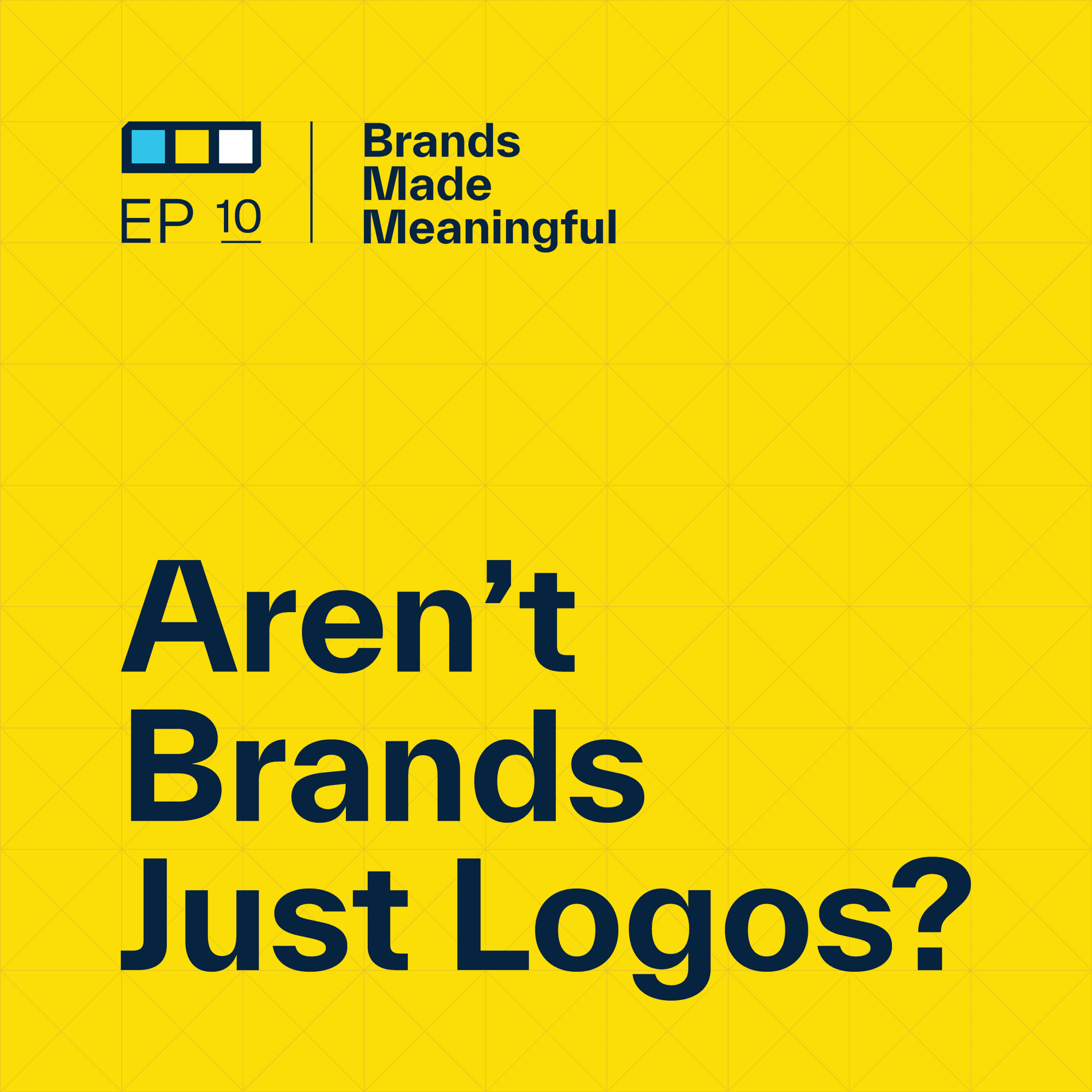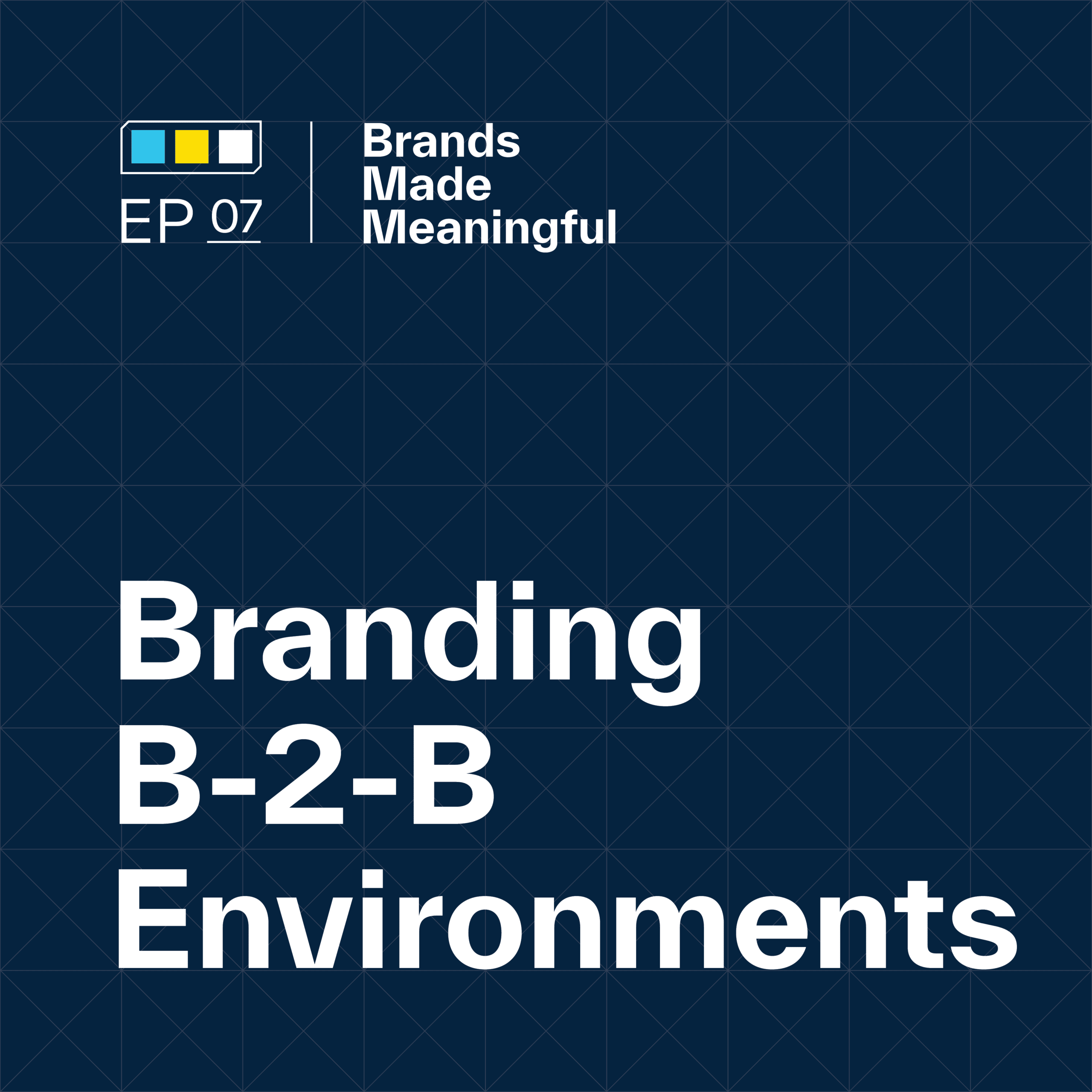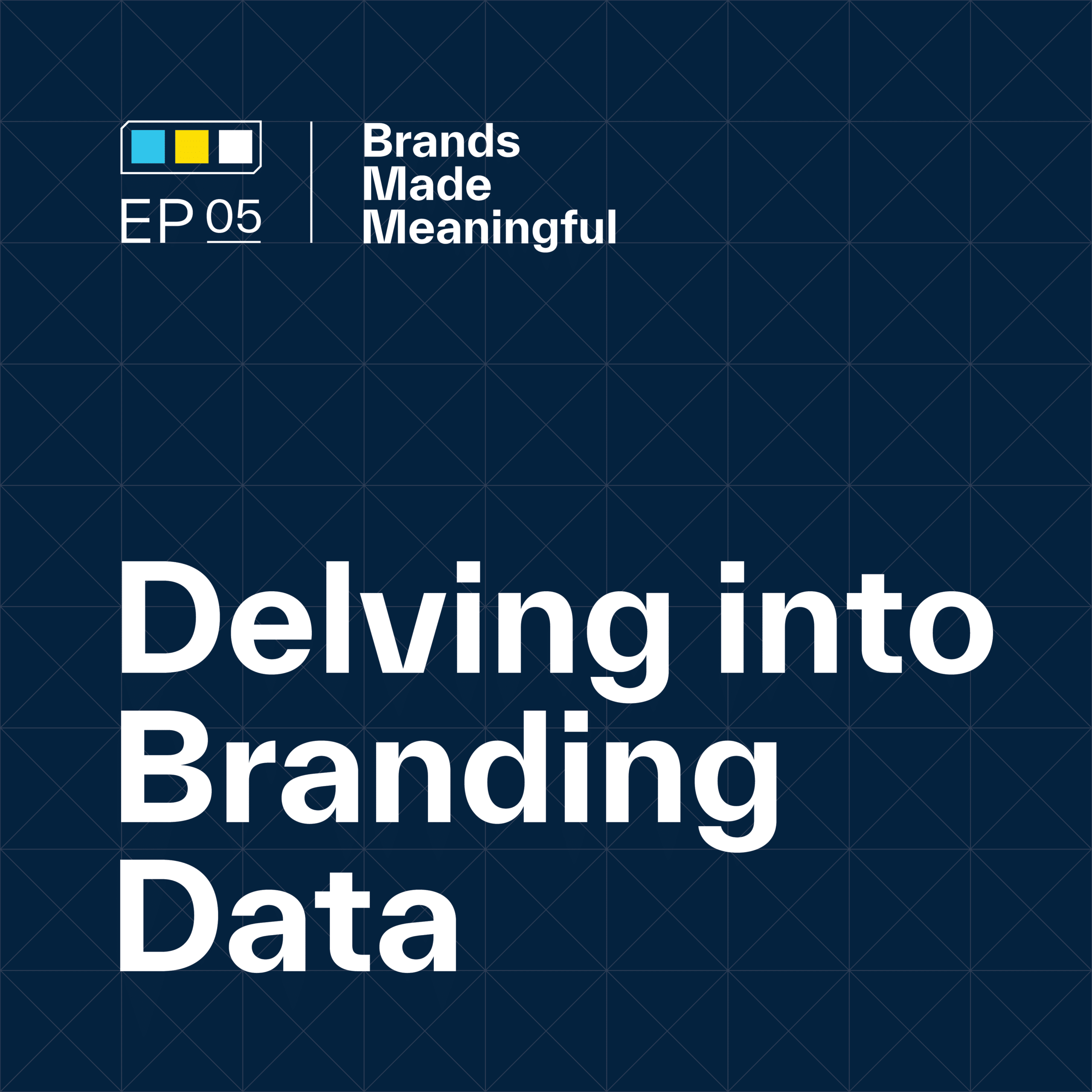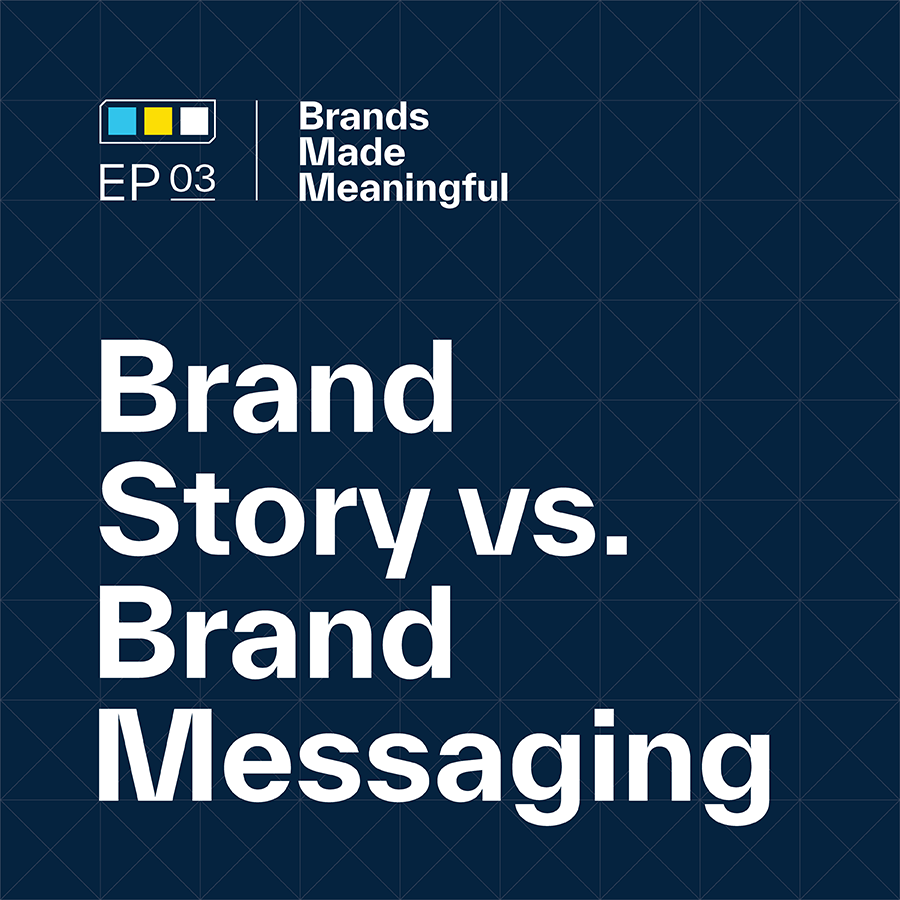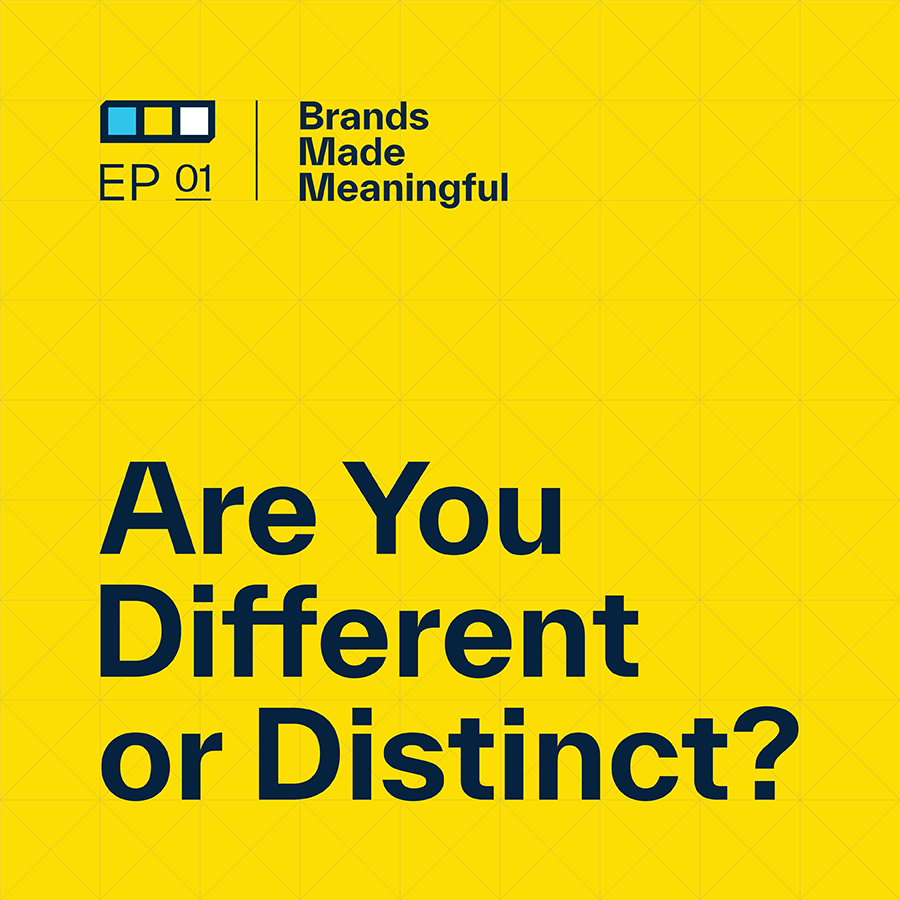EPISODE 08

Clarity of Vision
Episode 08
Derek and Tucker discuss the importance of looking ahead towards the big picture to better hone the purpose behind what we do in the now.
EPISODE TRANSCRIPTION
Today we’re talking about vision, eyesight, hindsight’s 2020, progressive lenses.
Tucker
I’m so glad we’re not actually talking about that. My best friend from college is going to school to be an eye doctor, and I would never make it in that field.
Derek
A former client of ours from a long time ago. His expertize, he’s a doctor or has a doctorate, in all the stuff that goes on deep inside the eye. And it’s pretty fascinating, but it’s incredibly complicated.
Expand Full Transcript
Tucker
Oh my, way more complicated than this conversation, I would say. But today we’re talking about vision of a company.
Derek
So a little less scientific. a little more-
Tucker
Emotional, on my side-
Derek
Right Brain. Little less left brain.
Tucker
Yeah, for sure.
Derek
Company vision, corporate vision.
Tucker
or brand vision?
Derek
Brand vision.
Tucker
Right. It could be more than just a company or a business. It could just be a product. What is this product doing? Where is it going? I think vision is a common issue for a lot of the companies we work with because they don’t think big enough; which sounds interesting to me.
Derek
I think it’s really easy in the day to day of going to work, of doing your business, of working in your job, your career to get so focused on the deadlines. The quarter, what’s due at the end of the week, and what’s profit look like at the end of the quarter; were deadline-driven. Just about everything that we work on has a date stamped to it. Whether there’s a trade show or a product launch or some sort of promotion that’s happening. So we’re accustomed to setting that date and working backward and thinking one day at a time, one week at a time. Working on your vision is basically getting up on top of all of that, getting outside of all of that, climbing up to the top of that metaphorical tree and looking past the edge of that tree line and seeing where it is that you’re actually trying to go.
Tucker
Yeah, when we work with clients, we talk a lot about guiding principles, right? And a vision statement or just your vision is a part of those guiding principles, but these larger guiding principles should really work together to help you make decisions, should help you inspire employees, it should do a lot of things. But today we’re just specifically digging into vision. In other episodes, we’ll talk about maybe your mission statement or your purpose statement, maybe your core values.
Derek
Well, let’s define vision a little bit further, and I think we might have to talk about the mission statement as one of the other elements of the guiding principles, because they work very closely together. So what do we mean here at Sussner when we say vision?
Tucker
Yeah, and you say that because everyone has their own kind of definition and how they go about it and I think vision is interesting. So in short, we say vision is what we aspire to be or what we aspire to create. So a vision is this future state that you’re trying to create, whether that’s the future state of the organization, whether the future state of society or whatever that is. Then the mission is what we’re doing to actually help us reach that state.
Derek
So while they’re both aspirational, the vision is really aspirational and the mission is more actionable.
Tucker
The vision guides the mission. The vision describes that state, which then people say, “Well, where does the purpose come in?” And I would say the vision describes the future state in which our purpose has been realized. When we work through the ‘why’, which is our purpose, then we say, “Okay, if we have this, ‘why’, then the best way to start thinking about our vision to start off is, well, if we actually realize that purpose, we do it over and over thousand times. What kind of world are we creating? What kind of organization are we creating? What is this?” And that starts us kind of thinking about it in a bigger sense, which then you can ladder down to the mission to say, “Okay, well, if we’re trying to create this world, then how do we create it?” I think a lot of people say, “This is what we do, our mission. So if we do that a thousand times, what’s going to happen?” And I think that requires more effort. It’s easier to come from the top down instead of going from the bottom up in my mind.
Derek
And when you get hyper-focused on the mission and the ‘what’ are we doing, then you’re back into the working in the business instead of working on the business. Then you’re right back into the measurables, the key performance indicators, the tactics that you are working on that you think will help you achieve something. And sometimes the risk is you lose sight of the vision or you didn’t have one in the first place.
Tucker
Achieving the mission is critical to the whole thing. If we’re not achieving our mission, then we’re never going to get anywhere. Totally understand that. But in order to actually have clarity around what that mission is doing and have an understanding of, well, if we achieve this part of the mission or achieve this part of the mission that allows us to really achieve this all together. And I think what happens is that people get so caught up in this mission that they’re trying to do day-to-day, like you’re saying. And they don’t really think about the big picture enough. To say, okay, well, why are we doing that? If we’re creating cars, and that’s our mission is to create the best car in the world, why are we doing that? What is this thing that we’re leading to? And I think that without asking those bigger questions, we start risking being uninspiring to employees.
Derek
There’s a couple of different books that we’ve read that come at this a couple of different ways. And one of my favorite ones, I think it’s called “Mindset”, and it talks about the difference between a growth mindset and a fixed mindset. Carol Dweck, I believe, was the author, but I’ll have to fact-check that. But the idea of being vision-oriented as an organization would mean that you have a growth mindset. You’re never going to get there. You’re never supposed to achieve the vision because it’s so aspirational that it drives you and pushes you and guides you while you continue to check some of the boxes of the items on your mission that show that you’re successfully working towards this very aspirational place.
Tucker
If you read a book called, “The Infinite Game” by Simon Sinek, I think it’s the same principle. To say, we need to have something that’s infinite. We need to have something that’s so far out there that we’re always chasing it or we’ll become stagnant. And I think this idea of being infinite (he calls it a just-cause in his book) he calls it, “Oh, we have we have a purpose and then we have a just-cause.” This just-cause can be shared by everybody, it’s this thing that we’re trying to create that is almost infinite because it can never really fully be achieved. In our mind, the just-cause in his book fits perfectly into the vision statement. Like, what do we want to create? What do we want to be? And that should be more than just the company. And I think in his book he really gets into that. To say, “We need to create something that I can’t do alone. I need you. I need to ask my employees. I need to ask not even my employees, but my customers to join us in this cause, to say we need to move forward.” And I think that’s the best way to start thinking about a vision. It’s not just about us. It’s not just about me. It’s about everyone. So when we think of vision as in what do we aspire to be? What do we aspire to create? Depending on what inspires you the most, I think we have clients that go either way. Sometimes they want to create something for everybody. Sometimes they go, “No, no, no, no, that doesn’t inspire me. I want to go this way. To be something bigger.” I think that’s where we start becoming more fluid in the way we actually practice this implementation. Then the mission is, what are we doing? Whether that’s daily, whether that’s yearly, or whether that’s just no time frame at all. But what are we doing to actually get us to that vision? And then a part of that is core values too. So, who do we need on our team to actually achieve that mission and be bigger people? Who are we? What do we value in people? So those are a couple of the things that go in there. We talked a little bit about purpose and all this other stuff.
Derek
Well, hang on a second. So, in the model that we use that we work on when we help a company articulate its vision, we’re not creating it. It’s their company, but what we can often do is help facilitate a conversation that helps draw that out of them in a way that we can get down on paper in a concise way.
Tucker
In a workshop.
Derek
And I think we’ll have future conversations that we’ll talk specifically about purpose and about mission and about core values, which you just said. But you’ve just keyed in on essentially the top half of the Guiding Principles model and if purpose is the ‘why’, and vision is the ‘where we’re going’ and the mission is, ‘how do we get there’-
Tucker
Or what we do.
Derek
And the core values are the attributes that describe the type of people and the culture that we need to achieve the mission, which helps us achieve our vision or work towards our vision. There’s a really great metaphor around sort of a military approach that came out of some conversations you and I had after reading Simon Sinek’s book around the infinite mindset.
Tucker
Yeah so he doesn’t get into this specifically, but I think we’ve kind of talked about this and we use it in workshops and it helps frame up what each piece is for people in general. And so I always start at the bottom and go up, just because it’s easier to understand. And we’re talking military, I think of it as like a war example, say there’s a war going on and we’re military. So what is our core values, mission, vision and purpose? All these different things, and so I start with core values at the bottom. So, let’s describe our soul soldiers. Who are they? Who do they need to be? What do they need to be as people in order for us to win this whole thing or to achieve what we want to achieve? Then I think of our mission as winning that war, which is different, right? Because some people think of our vision as winning that war. Like, “Oh, no, I want to do this battle so that I win the war.” And I think that’s where the bigger problem is. People don’t think of the mission as the war. So it’s longer-term than I think most people conceive it as. And then we say, okay, if our mission is our war, if we achieve that, if we win the war, then our vision is what is that world we’re creating once we achieve that goal? If we win the war, what’s going to happen? What’s going to happen to the world? What are we going to create? Are we going to create a world that’s full of democracy? And then our purpose or our why is our beliefs. So why do we even care about that world? Why do we want to create that world? Well, we want to create that world because we believe in freedom or something around there. And you can start kind of seeing how this ladders up. So we’re saying our core values for this military example are our soldiers. Our mission is to win the war. Our vision is we want to win the war because we want to live in this world of peace and democracy. And we do all of that because our purpose is really rooted in freedom because we believe in freedom. So you can kind of see how it starts laddering up and it makes it more approachable.
Derek
Another sports analogy version of that same sort of laddering up as it relates to golf, which is often the metaphor that I use when we talk about things. One of my favorite golfers of all time was David Duvall. And David Duvall rose to the number one golfer in the world after shooting a record-tying 59 in a tournament and then went on to win the British Open (or the Open Championship, as the Europeans prefer it be called) and then I don’t believe, and I could be wrong about this, but I don’t believe he won another tournament ever again after winning the British Open. He ended up having vertigo issues and some other health challenges, but in hindsight, in interviews with him, in this model of purpose, vision and mission, I think he set winning a major championship as his vision.
Tucker
So it was finite, it was totally achievable.
Derek
And once he did, his vision wasn’t to win multiple majors. His vision or his purpose wasn’t to become the best golfer or to become one of the greatest golfers of all time. His vision, in his mind, was to win a major championship, and that was a finite goal, and once he did it, he’s like, “Well, now what?” And he lost his drive. Whereas I remember when Rory McIlroy won his first major, that’s what he referred to it as. He said, “Well, I’m really excited that now I’ve won my first major.” So for Rory, winning that first major was just a tick in the milestone.
Tucker
It was a mission.
Derek
Yeah, in the mission section leading towards his vision of being something bigger and longer-lasting and infinite.
Tucker
When we talk to clients, this kind of conversation is the very beginning conversation. Once we get through discovery and doing all this other stuff to say like, So where are we going? What do we want to be? What do we want to create? And I think that most of our clients sit down and go, “We just want to sell the most X or we want to achieve this financial goal,” and I think that they assume that that’s their vision. They think, “That’s okay. Yep. That’s our big goal. We’re going to go after that.” And I think it’s interesting to look at a big, hairy, audacious goal and actually put a number to it because that’s finite. So it’s more of this growth mindset and changing your mindset is a big part of this.
Derek
So if I am at an organization and I say, “Our goal is to be the largest provider of X,” that’s a mission because that’s achievable.
Tucker
Yeah.
Derek
The vision is an elevated goal that’s higher than that, and it would be like if you b I would ask or we would ask that company, if you become the biggest or the largest, then what does that help your organization head towards?
Tucker
Yeah, what are you working towards? And we can get into some of this stuff, but so what are the most common issues of not having that vision?
Derek
One is not being able to think long-term. So, for example, if somebody was to ask a leader, an owner, a CEO of a company, “Where do you see this company in ten years?” If that person hasn’t already thought through what that longer-term answer is, or even, “Where do you see this company after you’ve sold it or retired?” Or, “Where is this organization going?” If they’re only focused on this year’s success, what success looks like this year, then that might be that they don’t have a vision that they’ve articulated.
Tucker
Which is interesting because a lot of consultants will come in and they’ll do a vision casting that is very tactical, very, “We envision hitting this milestone by this stage, doing this.” And maybe this is why Simon Sadek went away from the word vision at all because of the connotation it has with just business management. And it’s like, “Oh, well, we have to envision doing this and doing that.” It’s really for the boardroom.
Derek
Which is why half of the boardroom rolls their eyes when they say, “Hey, we’re going to do some vision casting work.”
Tucker
And even thinking outside the boardroom, if inside the boardroom, half of them roll their eyes going, “Oh, my God. So we’re going to talk about how great we’re going to be?” Think about outside the boardroom. What do those people outside the boardroom think when you come to them and say, “Our vision is to earn X amount of money by the time that we hit this date.” How many people in your company roll their eyes and go, “Who cares?”
Derek
And the first thing that that person is going to do is say, “How do I fit into that?” So what that means to me now is I need to sell more, work harder, do more, and achieve more. And that’s all fine from an employee performance standpoint. But what that person might really be looking for as an employee is an understanding of where this organization’s going. Especially if they’re in the process of considering working for your organization versus somebody else who’s in a similar space. To understand not only the difference and the differentiation of what your products are and the problems they solve, but to understand where is this organization going? Where is it going to be in five years or ten years? And can I envision myself being part of that organization and making an impact in helping this company achieve something that’s bigger than me?
Tucker
Your employees are sacrificing time, they’re sacrificing effort, and I get that they’re getting compensated for that. And that’s awesome, that’s great. But at the same time, they can get compensated elsewhere. So if you’re going to ask someone to sacrifice something, then you better give them an understanding of why they’re sacrificing. And if they’re sacrificing so they can hit a certain financial milestone by a certain date, that’s not going to be nearly as inspiring to their work than saying, “We’re really trying to do this, and this is bigger than you and it’s bigger than me.” It only can happen if we all work towards it. That’s where you start getting something special.
Derek
One more symptom of not having a vision is getting stuck on decision-making. When somebody comes up with an innovation or an idea on a product line or a direction the company might go, an acquisition, a merger, once you get past sort of the financial aspects of that, a truly successful company would say, “Well, let’s weigh that decision against our vision and where we’ve decided that this organization is heading. And does that support and fit within that vision?”
Tucker
Absolutely. It’s funny because you’d say that and I’d go, “And we’re a branding firm?” When we talk to our clients, the whole reason this started is because clients come to us without knowing what they want to be. And we got into this Guiding Principles game with the mindset of saying there’s a better way to do this that makes it more approachable for people internally, externally, in general, it can be used in more ways. And I think you saying that, to say people struggle with decision making, it came out of marketing decision making, 100%. To say, “We don’t even know how we’re going to market this thing. I don’t know. What are we going to do? And what does this mean for next year? What does this mean for ten years from now? And what is this even becoming?” This is where it really became part of decision-making, then when we actually implemented it, it turned out that leaders were going, “Look, this is way more helpful for everything else. I mean, it absolutely is helpful for the marketing department, but now it’s helping us make decisions down different avenues that we didn’t even think of; in hiring and firing and in innovation and doing other things.” So it’s really interesting to see the collateral damage that this work kind of does.
Derek
Well and per the name of the podcast, Brands Made Meaningful, a company that has a vision who’s looking to do something with their brand, whether any of the marketing, any of the creative, or any of the messaging that comes out of what that company creates is so much more meaningful and so much more impactful if there’s a real vision and mission to inspire and influence that direction. To say, “What does success really look like?”
Tucker
This is where we get from ‘brand’ is not just about the visuals. When ‘brand’ is understood, that it’s more than just the visuals, then we start getting into these deeper conversations to say, “Oh okay, so it’s about how we’re perceived. It’s about how we inspire, and it’s about how we do all of this other stuff.” And granted, that could be absolutely through visuals. But a lot of times for internal people, it’s not. Visuals don’t inspire people as much as the words behind them. And I think that when we get down into it, being able to really dig deeper, and become more meaningful in the way that we communicate to our internal teams and even our customers goes a long way. And yeah, it absolutely is more effective, but it also lasts a lot longer.
Derek
Yeah, exactly. There’s a word in the creative industry called ephemera; short life, short-lived. Think of a wedding invitation. It goes out, it serves its purpose. The event happens, and then you know unless you’re the bride and the groom or the couple or the parents, those probably get recycled. So what we’re trying to do when it comes to an organization’s brand is the opposite of ephemera. We’re trying to make this as long-lasting in addition to being meaningful as possible.
Tucker
Yeah, and that requires us to take a step back in order to move forward. I think the hardest conversation we have from a new business or an onboarding perspective is for clients to go, “Wait, wait, wait, we’re going to spend all this time doing this? I just wanted to get to X.” The idea is we will get to X, but we don’t want you to have to do that over and over and over again. We want to take one step back so that we can make something out of this that lasts a really long time.
Derek
Many of the organizations that we work with, that we start with, they have a vision and they’ve already done the hard work of articulating that and they’re working towards that vision. But for somebody who might be listening today, who doesn’t have a vision for their brand, for their organization, or is maybe now questioning whether or not their vision is as thoughtful and meaningful and as aspirational as it could be, what are a couple of things that that person could be thinking about that might help them take a step in the direction of fixing that?
Tucker
The first step that I would take is to start talking to some people at your organization. To say, “Hey, are you inspired by what you do or do you know where we’re going?” We had this conversation with a client probably three months ago where someone goes, “Yeah, I don’t know if we need that.” And then they spent a couple of days just asking around and it turns out no one else in the organization knew where they were going or why they were doing what they were doing in the first place. So this was all kind of sitting in the CEO’s head. To say, “Oh, well, I thought we knew. I thought everyone was on board. Turns out that no, not at all.” So I’d say that first step that you would take is to start asking around, “Where do you think we’re going? Why do you think we’re here?” And if you start getting the same answer, then you’re absolutely on the right track. Then people know why they’re here, what they’re doing. If the answer is tactical, that might be a little bit more difficult. To say, “Oh, well, we’re here to sell X. We’re here to service these people.” Then you start getting into the, I would say, red flag zone. To say, “Oh, these people know what we do, but they don’t know why we’re here or where we’re going.” So that’s what I would start with.
Derek
I think another question to just ask yourself is simply, where do we see this organization in ten years? Whether you’re still part of it or not, as the owner, leader, or leadership team, where do we want to be? What do we aspire to be? Jim Collins in Good to Great would describe this organization as being on a bus, and your vision is, where’s this bus headed? When you look at our organization, when this organization was started two decades ago, the original vision was to make it a year. Was to just prove the point that this was a business that could sustain and survive. And once we got to one year, the goal was to make it to five. Because most new businesses that make it to one year don’t make it to five. And so we absolutely didn’t have a vision when we got started, so it’s very typical. It’s very normal in our conversations that not just young entrepreneurs, but entrepreneurs, in general, are so focused on what they do and the skill set that they have and what they’re really good at, that they haven’t paused and taken that step back to look ten,15 or 20 years down the road and envision an exciting and amazing place that it could be.
Tucker
And it’s more than being the best. I think that’s what a lot of people kind of result to. And we have clients that get there, and I think we always challenge our clients, and sometimes they push back and say, “This is what inspires me. This is the sentence, this is the statement that inspires me.” And that’s fine. Our job is to get you work that inspires you and help you get there. To do right by you. And we will absolutely provide insight and opinions and push back where we feel is right. But at the end of the day, these are statements. So a vision statement is something that needs to inspire you. It needs to inspire employees.
Derek
Being the best, being the first, and being the original are positioning statements. And that’s a separate podcast conversation. That’s not a vision statement.
Tucker
It could be a mission. It could be, “We want to be the best at this.” It’s hard to measure that for a mission. And being the best at a vision is not really a place. I mean, it could be, “This is what we want to become,” and that’s great.
Derek
Some people in working on this, especially if they’re working on it for themselves, are going to get caught up in the words. What’s some advice that we might give somebody who’s taken a break, gotten offsite, maybe gathered with their leadership team, and they’re working on articulating their own vision, but they’re getting stuck in the words; in the wordsmithing. How do we help them get around that?
Tucker
What I’d do, the first step when we do a workshop, don’t write sentences; jot down ideas. Whether that’s 1-word ideas 2-word phrases. Just words. Just ideas. You can always take that to a copywriter if you really want to.
Derek
Don’t get stuck on having the words have to be perfect.
Tucker
No, not at all. And then the other part is to ask “why” as many times as possible. And Derek, I know you go for three, I go for as many times until you get upset. But if you can say we do “this,” we sell knee braces. Why do we still need braces? And then someone goes, “Oh, because of this.” Then you go, “Well, why do we do that?” And then they go, “Well because we’re doing this.” Like, why, why, why? Why, why, why? Why? Until you get down to something that’s really big. Then you can start coming back from there, and I think a lot of people don’t go deep enough. They don’t go to enough ‘whys’ to really get that answer. So, ask people about what they think. Really get an understanding of where people are today. Then next, you should sit down with a team, your key stakeholders, your leadership team, whoever, and start jotting down things. Not phrases, not sentences, but just ideas. One word, two words is the way that we kind of hone it in. As many as possible to why we’re really here. And then just keep going down that rabbit hole. If you get there long enough, you’ll get to an answer. And that answer might shock you.
Derek
And if you do get stuck, consider a facilitator. Consider bringing in somebody that can help guide that conversation and draw that out of you. But you may have somebody on your team.
Tucker
You said it earlier in this episode, but we don’t create something for our clients. This whole process is already sitting at the table. If it’s not at the table already, then we don’t have the right people. And you wouldn’t be a successful organization if you didn’t have the right people. So we go into the mindset of saying, it’s not our job to create this for you. It’s our job to pull it out and to guide you through it. So absolutely, we’ve had clients come back to us and go, “I could have never gotten there without doing this kind of workshop where you just keep pulling it out of us and just keep challenging us to push farther and farther and farther.” But at the same time, I look at them and go, “Well, we could have never gotten here without you and your mindset already.” So the only difference is, that an external perspective is super valuable for this, but it can absolutely be done internally.
Derek
And you mentioned it before, The Infinite Game by Simon Sinek is a great read. It’s an accessible read and the analogies that he gives around the difference between an infinite mindset and a finite mindset, a growth mindset and a fixed mindset I thought was incredibly helpful for me.
Tucker
Absolutely, and I suggest it the time. It’s one of my favorite books right now for sure. It challenges people enough.
Derek
We’ll add that to our future book club.
Tucker
Book club?
Derek
Book club podcast conversation!
Tucker
If you would have told me 20 years ago that I was going to be in a book club, I would have laughed in your face.
Derek
As long as I can read the book by listening to it on Audible, then I’m open to being part of the club.
Tucker
All right.
Derek
Until next time.
Tucker
Thank you.
More Episodes Like This
Building Brand GuidelinesEpisode 65
Derek and Tucker show us how to build infrastructure guidelines to unify your brand experience across the board.
Club Identity SystemsEpisode 64
Derek and Tucker cover what Identity Systems entail and how to discern between internal and external methodologies.
Navigating Branding With a BoardEpisode 63
Derek and Tucker bring clarity to uniting your company under one cohesive vision.
Putting a Committee TogetherEpisode 62
Derek and Tucker assemble your need-to-know facts when putting together your committee.
The Guiding Principles of Private ClubsEpisode 61
Derek and Tucker go over the top ways private clubs can find the balance between pleasing old members while attracting new ones, all while making moves towards the future.
How Color Affects PerceptionEpisode 60
Derek and Tucker cover how to best convey your business with color.
Brand EcosystemsEpisode 59
Derek and Tucker break down how to craft effortless experiences when considering your brand as a whole.
6 Types of Brand TransformationEpisode 58
Derek and Tucker dive into 6 distinct types of transformations for a wide range of brands.
Tournament Branding For ClubsEpisode 57
Derek and Tucker discuss designing and delighting your club members with tailored events.
Brand Promoters & DetractorsEpisode 56
Derek and Tucker discuss how high level promoters increase your NPS and how to turn the tides on your detractors.
The Loudest Voices in the RoomEpisode 55
Derek and Tucker talk about gathering feedback while prioritizing every voice.
Determining A Primary AudienceEpisode 54
Derek and Tucker discuss if and when you should be honing in on your audience vs. casting as wide a net as possible.
Branding For ExclusivityEpisode 53
Derek and Tucker discuss the intricate process of naming your brand.
Measuring Brand SuccessEpisode 52
Derek and Tucker discuss how we measure our success in branding and a few key KPIs that help us understand our impact.
Branding For ExclusivityEpisode 51
Derek and Tucker breakdown how brands can create the perception that they are exclusive and only for a certain type of consumer.
What Makes A Brand SurprisingEpisode 50
Derek and Tucker break down the Sussner formula that we believe leads to a surprising brand.
Breathe Life Into Brand TraditionEpisode 49
Derek and Tucker discuss the intricacies and common pitfalls of branding for Private Golf Clubs.
They Key of Visual DifferentiationEpisode 48
Derek and Tucker break down the importance of differentiating your brand on a visual level.
Branding For Private GolfEpisode 47
Derek and Tucker discuss the intricacies and common pitfalls of branding for Private Golf Clubs.
Dealing With An Identity CrisisEpisode 46
Derek and Tucker breakdown how to identify and remedy a brand's identity crisis throughout thoughtful and intentional brand management.
Branding vs MarketingEpisode 45
Derek and Tucker discuss the differences between Branding and Marketing and how to make the two compliment each other.
Build Your Brand's FoundationEpisode 44
A brand's foundation is a critical element in being successful in the long-term.
Building a Constructive Branding ProcessEpisode 43
Derek and Tucker break down the steps required to build the most constructive and meaningful branding process.
What Makes a Brand Relevant?Episode 42
Relevance is a key piece of a brand's identity for creating clarity and connection.
Your Right to WinEpisode 41
Derek and Tucker discuss the “Right to Win” and the odds of your brand's success within your target market.
An Intro to Sub BrandingEpisode 40
Derek and Tucker discuss the nuances of developing sub-branding and strategies.
Conquer Branding FearsEpisode 39
Derek and Tucker dive into how to overcome the fear of change and the nature of constant refinement of your brand.
Balancing Strategy & DesignEpisode 38
Great strategy is a necessary foundation for great design—and great design brings great strategy to life.
Branding PrioritiesEpisode 37
Branding priorities are the actions and initiatives that shape or enhance a brand's identity, perception, and market position.
Invest in Your BrandEpisode 36
Investing in your brand benefits your company as a competitor in the marketplace, builds trust with customers, increases perception of quality, and drives employee engagement.
Why is Positioning Scary?Episode 35
Narrowing the brand's position is really a strategic decision to focus the brand's offerings, messaging and target audience on a specific niche or segment within the market.
What Are Brand Consultants?Episode 34
Derek and Tucker discuss the importance of hiring expertise with a wider breadth of knowledge than just visuals.
Hire for Brand FitEpisode 33
Hiring people that fit your brand is key in order to maintain brand authenticity, positive culture, and consistent messaging.
Your Brand’s Stance MattersEpisode 32
Your stance can help define your brand from a core level and make branding, hiring, and marketing not only easier, but more meaningful.
Levels of Executing a Brand RefreshEpisode 31
If you have a brand strategy in place, how do you execute it?
The Role of Features & BenefitsEpisode 30
Derek and Tucker discuss the importance of features and benefits within the context of branding, selling, and marketing your products and services.
Should You Listen To or Lead Your Customers?Episode 29
Within the challenge of any rebrand is the challenge of managing customers' perception of change.
Managing a Brand TransformationEpisode 28
Episode 28 discusses the highlights and challenges of rolling out a new brand, both internally and externally.
Living Your BrandEpisode 27
Your brand is not this shiny trophy on the shelf. It is something that you are molding every single day.
What Makes a Brand Authentic?Episode 26
Season 2 starts off with a discussion about building authentic brand experiences, both internally and externally.
Reviewing your Competition's CreativeEpisode 25
Derek and Tucker discuss the process of reviewing your competitors' creative strategy to better position your brand within the market.
Interviewing your Audience for InsightsEpisode 24
This episode details the process and benefits of interviewing your audience as part of the branding process.
Assumption ReversalEpisode 23
Derek and Tucker discuss how we change our thoughts and get into a different mindset to refine and revise our branding.
Developing vs. Amplifying a BrandEpisode 22
Another way to say it is, development is building and crafting your brand story, and amplification is then telling it.
Refreshing a Sporting Goods BrandEpisode 21
This episode shares the steps behind Sussner’s work in refining the Shock Doctor brand.
Defining PerceptionEpisode 20
Derek and Tucker discuss the positive and negative impacts of brand perception.
What is a Brand?Episode 19
Derek and Tucker discuss what defines a brand and what makes them successful.
Branding Golf Courses vs Golf ClubsEpisode 18
Derek and Tucker further hone in on golf course design.
Refreshing a Golf CourseEpisode 17
Derek and Tucker discuss the bar for golf course design – and how to push past it.
Let’s Talk Taglines Episode 16
Derek and Tucker talk taglines in today's episode.
Refreshing an Athletic DepartmentEpisode 15
Derek and Tucker sit down today to discuss what logos mean within branding.
Branding a Club Episode 14
Derek and Tucker discuss how to brainstorm branding a club.
An Intro to Internal Branding Episode 13
Derek and Tucker discuss the power behind internal branding.
The Value of Stereotyping Episode 12
Derek and Tucker sit down today to discuss the meaning of stereotyping within the branding world.
We’re on a Mission Episode 11
This episode digs into the rallying cry for the greatness your team is going to accomplish.
Aren’t Brands Just Logos? Episode 10
Derek and Tucker sit down today to discuss what logos mean within branding.
The Business You Are Really In Episode 09
Derek and Tucker sit down today to discuss how to discover what business you are really in to better understand your mission statement.
Clarity of Vision Episode 08
Derek and Tucker discuss the importance of looking ahead towards the big picture to better hone the purpose behind what we do in the now.
Branding B-2-B Environments Episode 07
Derek and Tucker discuss the Branding of Spaces.
It’s All in the Name Episode 06
Derek and Tucker discuss what a name can say - and not - about your company.
Delving Into Branding Data Episode 05
Derek and Tucker jump into the discovery phase of branding before it hits the drawing board.
Content Made Meaningful Episode 04
Today Derek and Tucker discuss the concepts within content and its common misconceptions such as the phrase "Content is King."
Brand Story vs. Brand Messaging Episode 03
Your story matters.
Visuals That Take The Cake Episode 02
Derek and Tucker sit down to discuss visual impact and what that could mean for your brand.
Are You Different or Distinct? Episode 01
It's not about being the only option, it's about being the right option. Join Derek and Tucker as they discuss Differentiation & Distinction.


